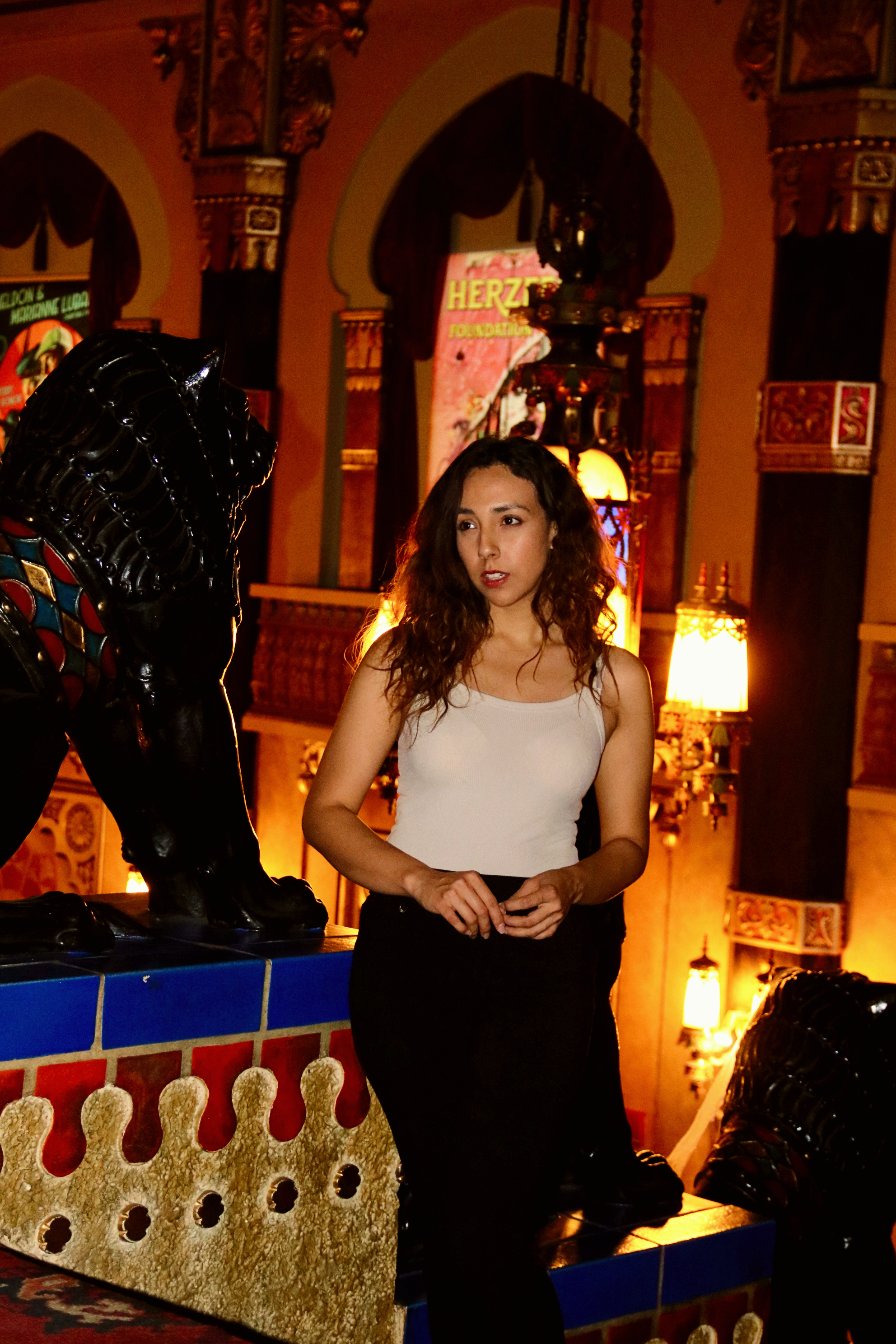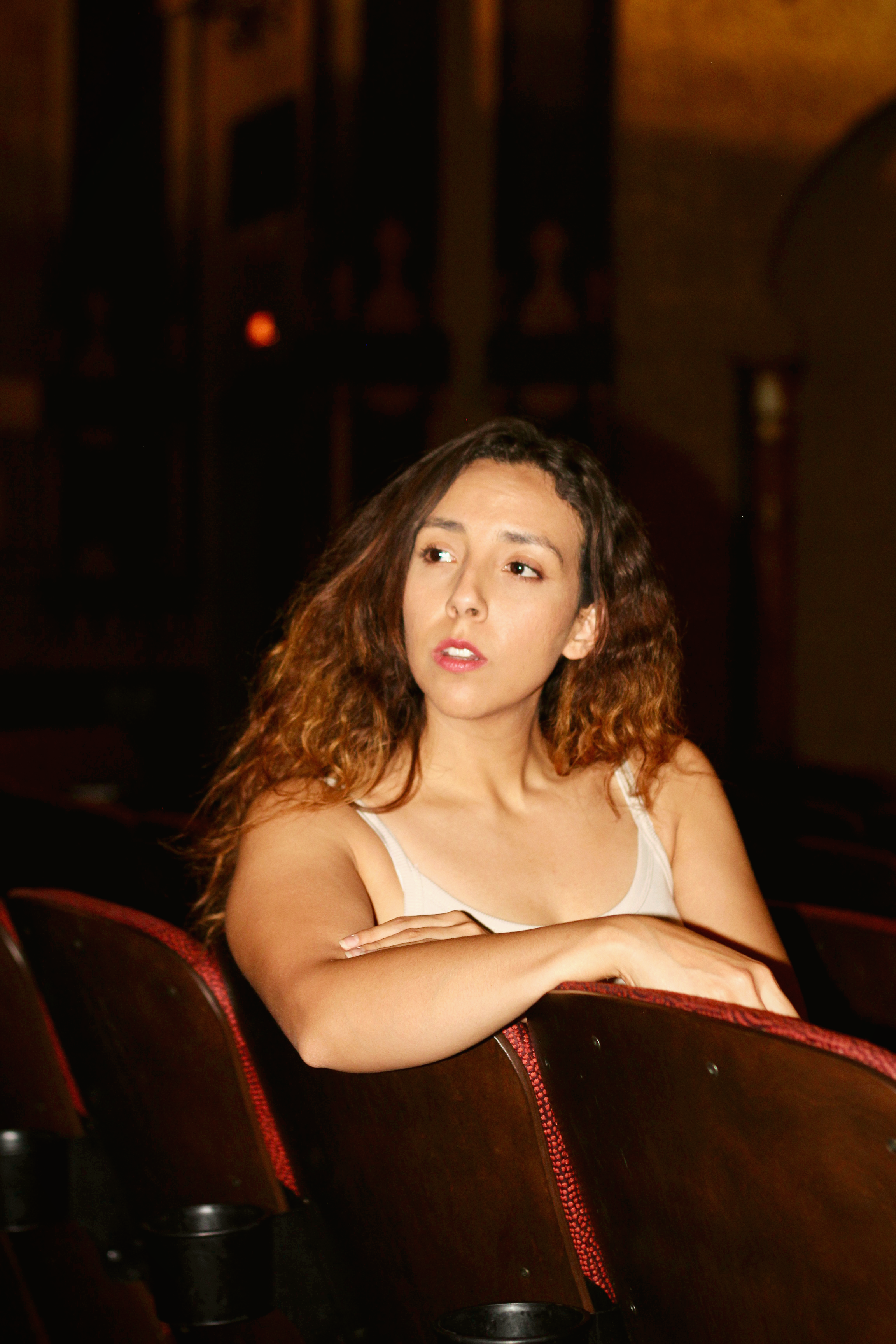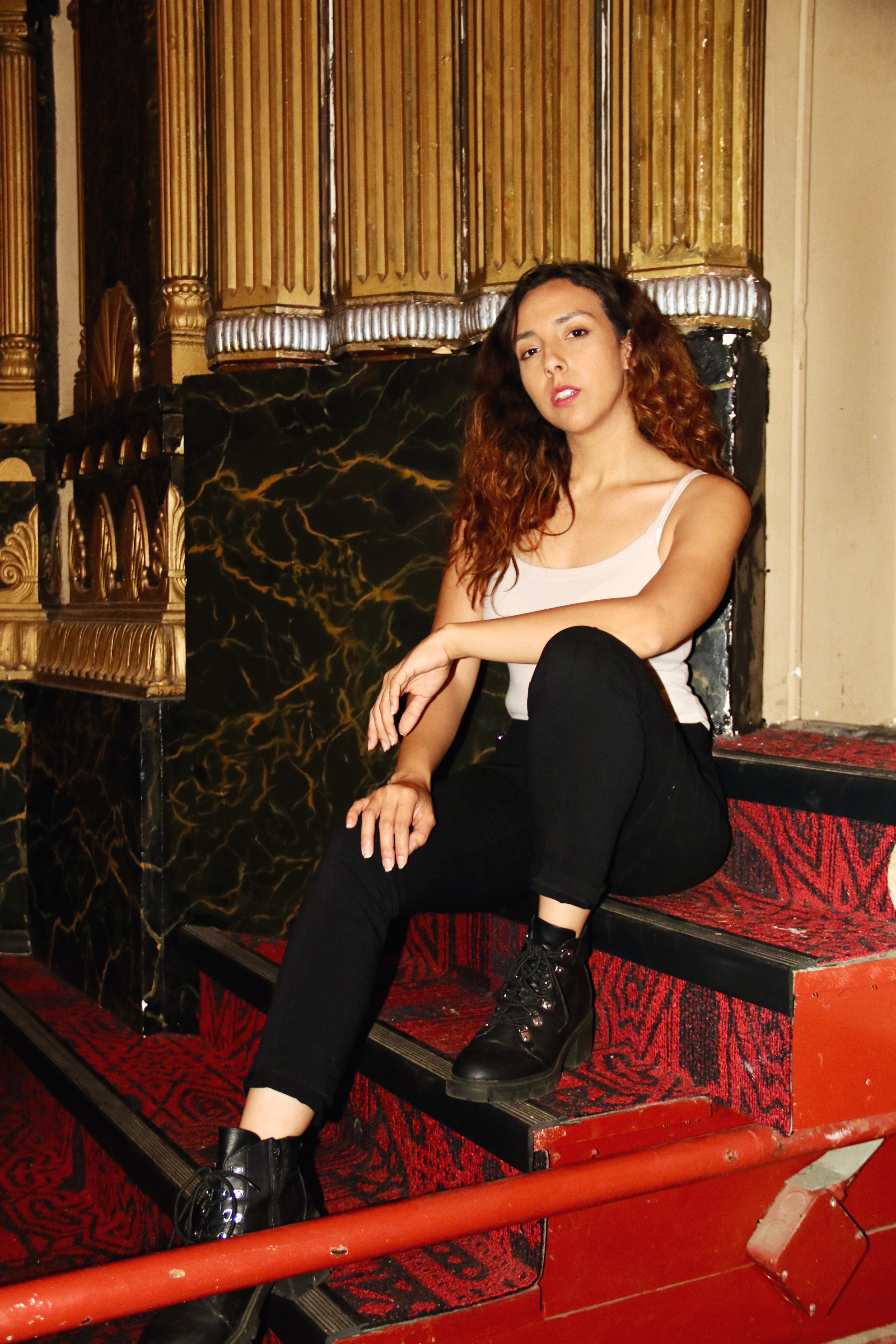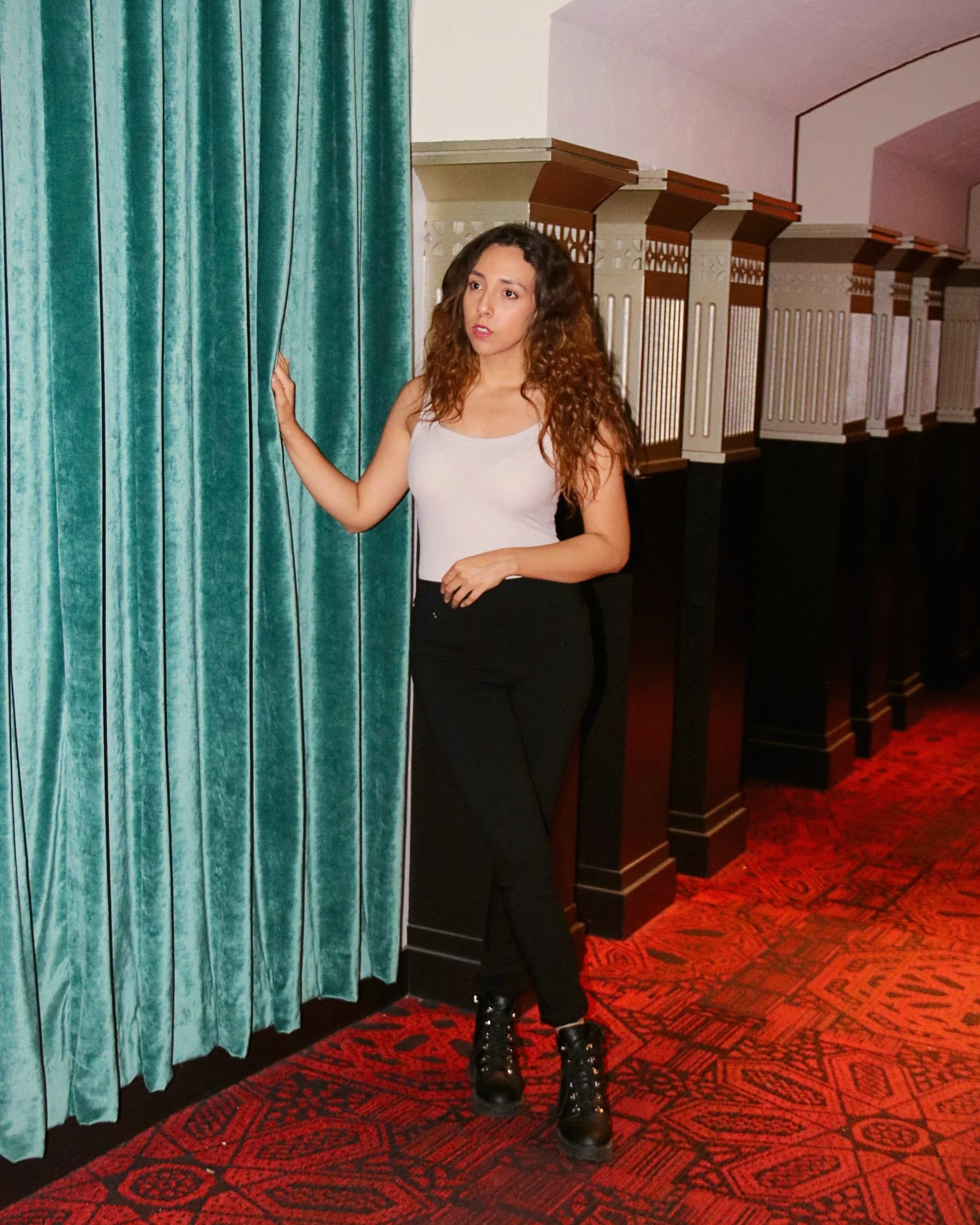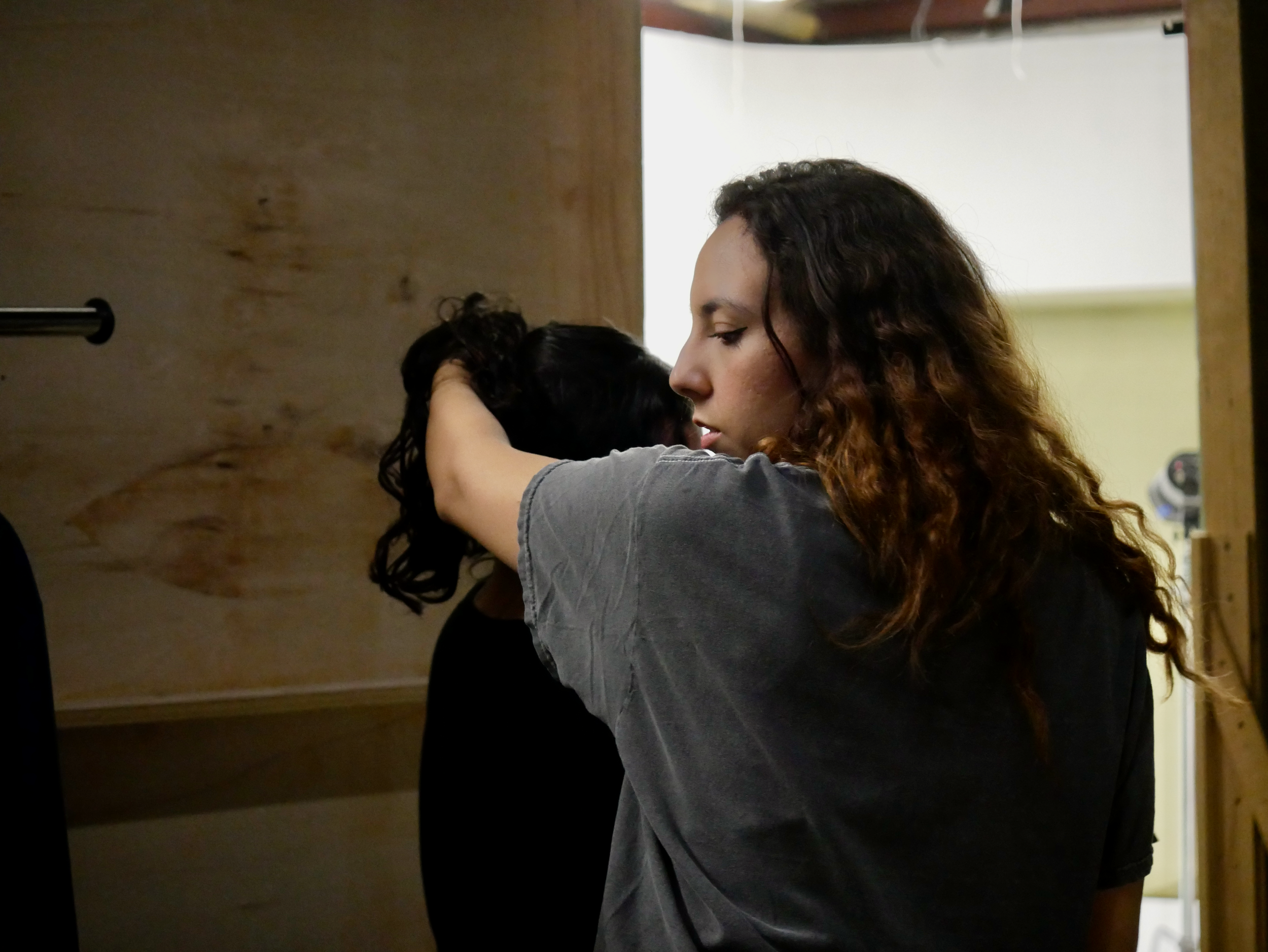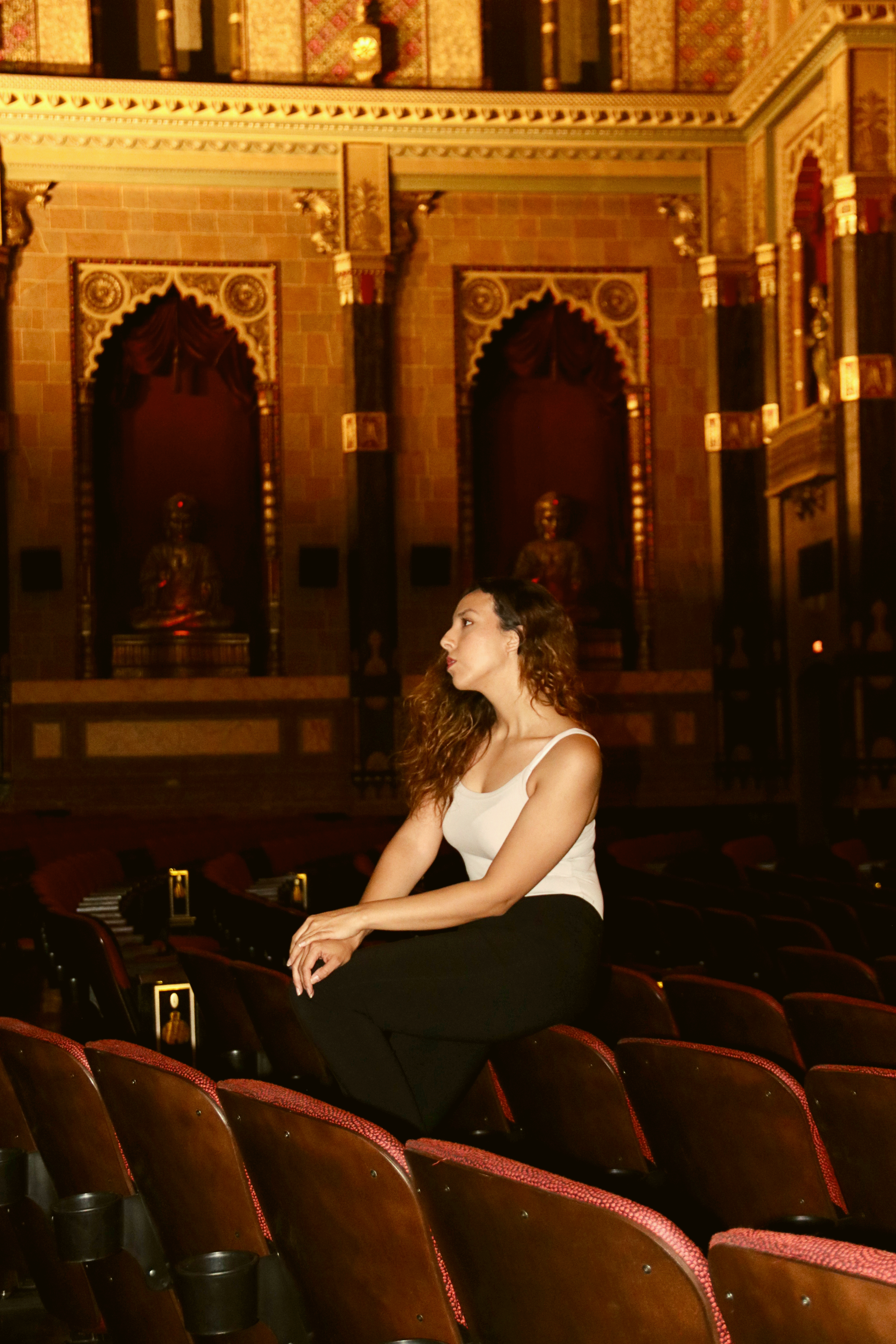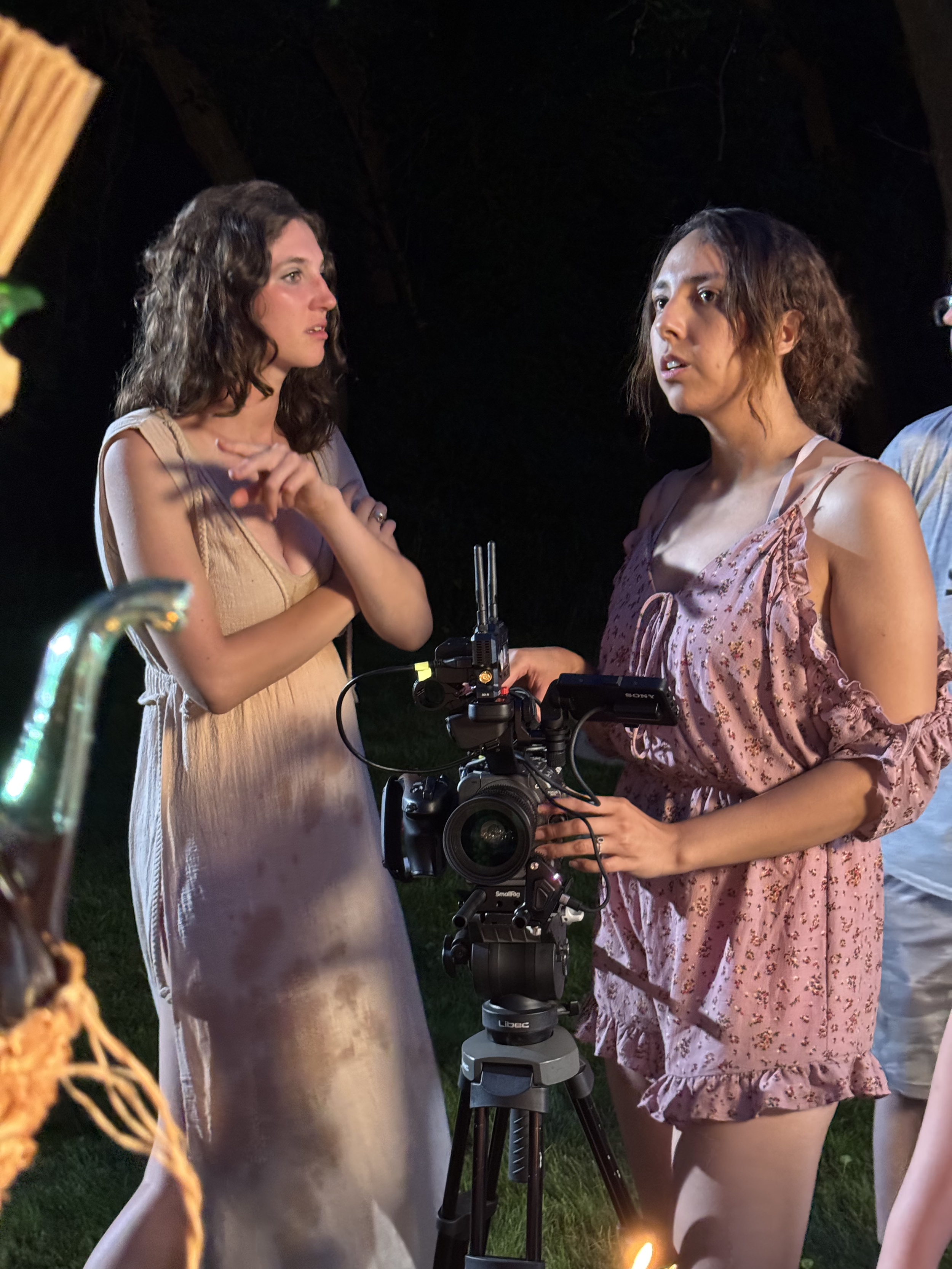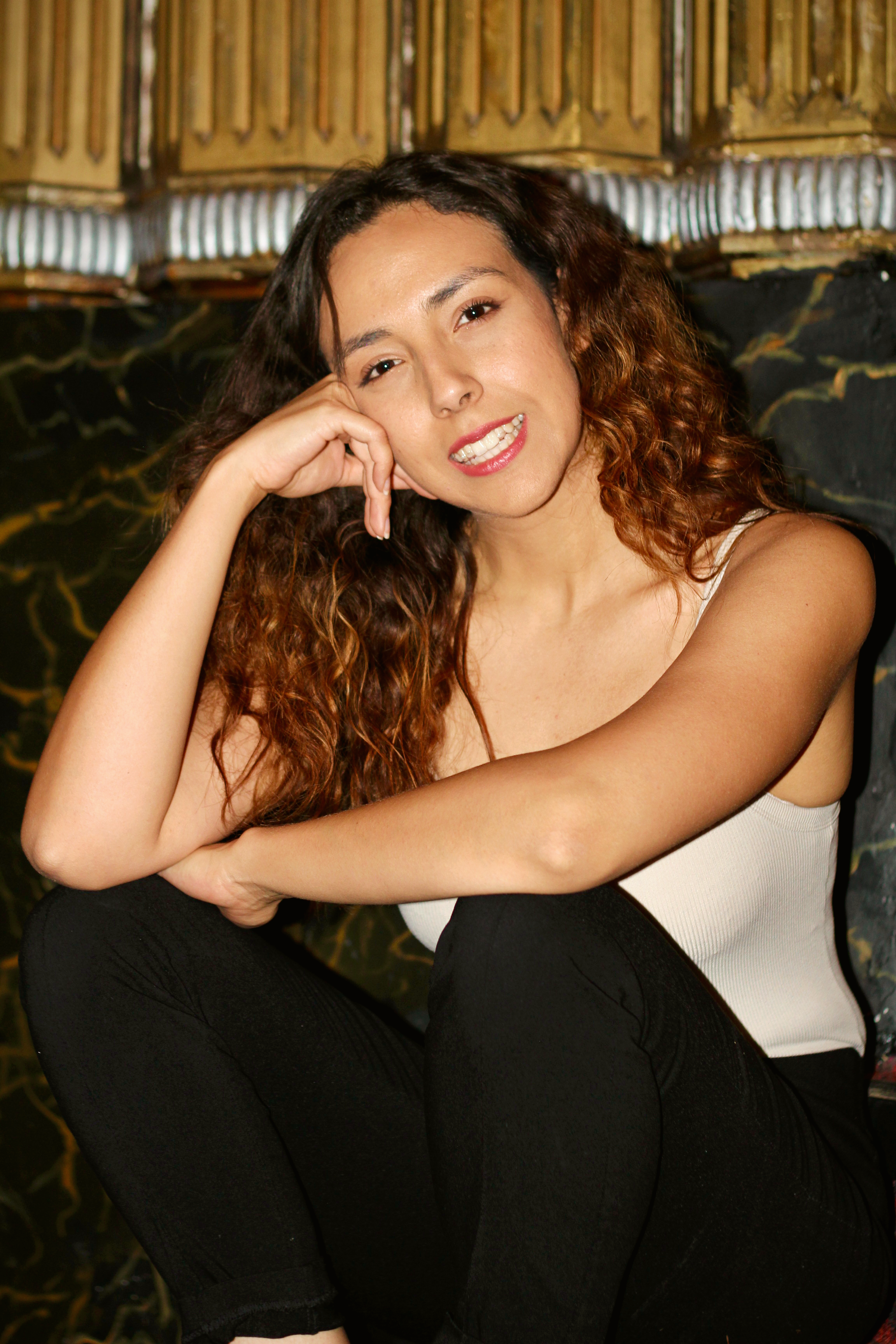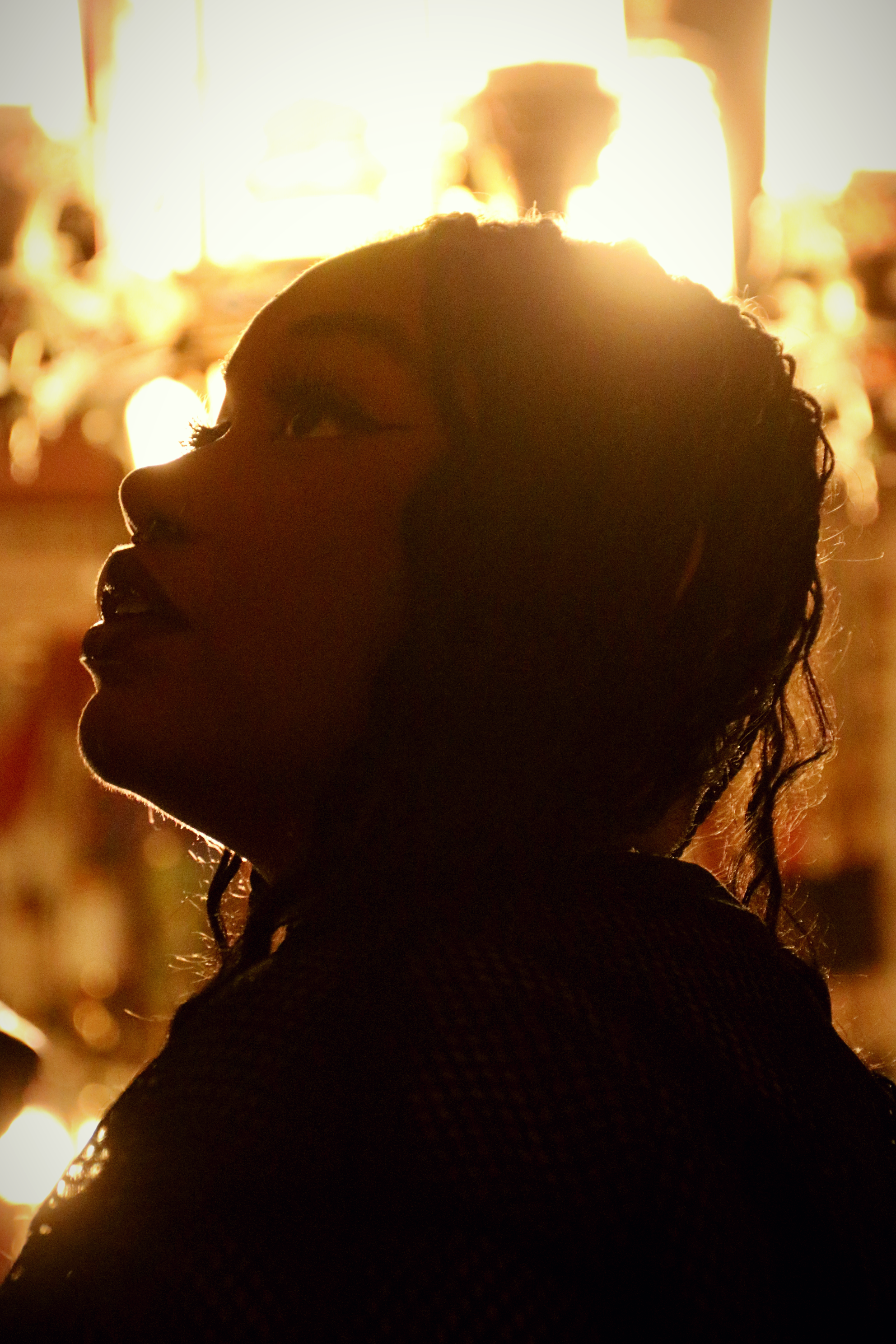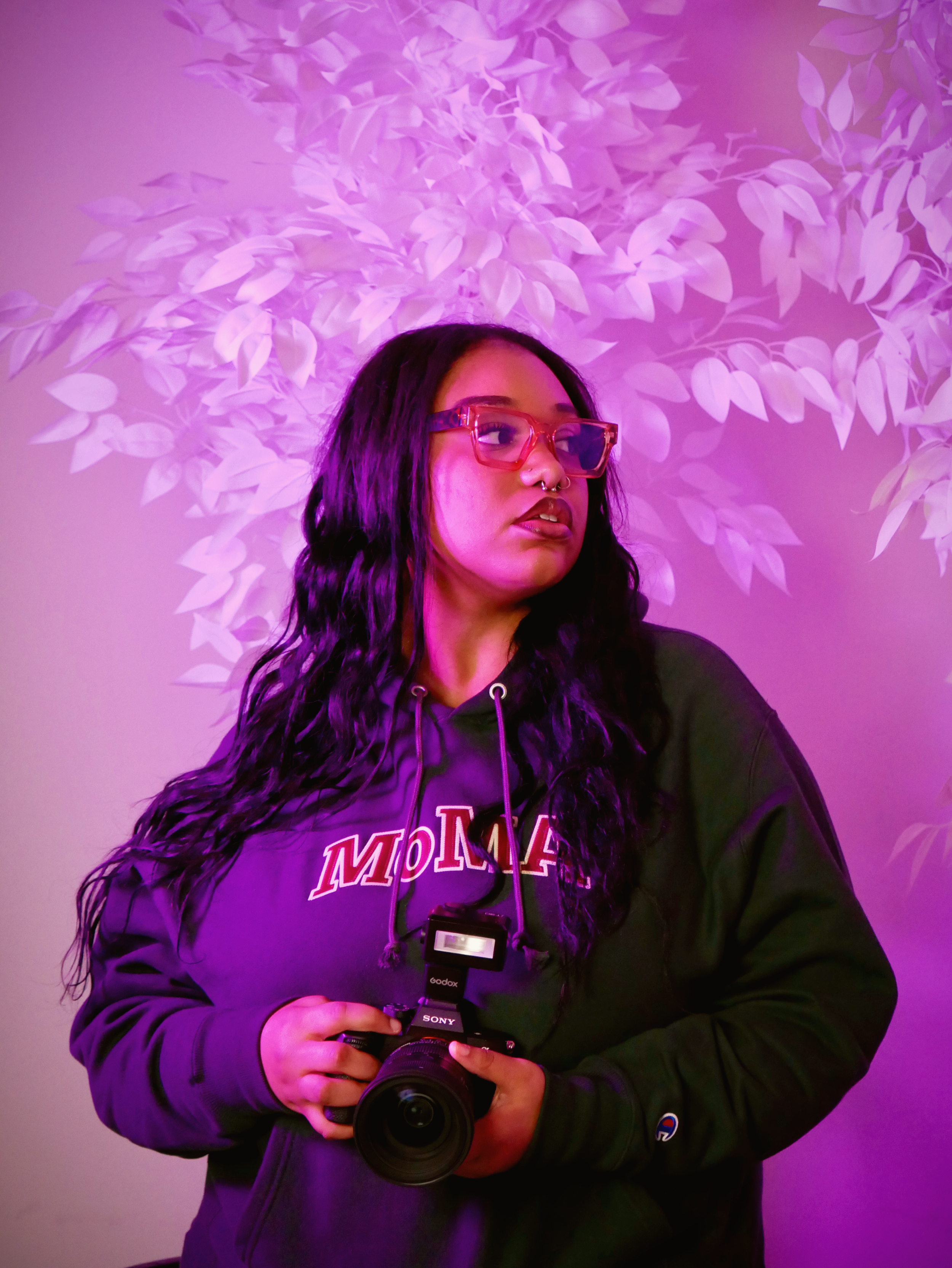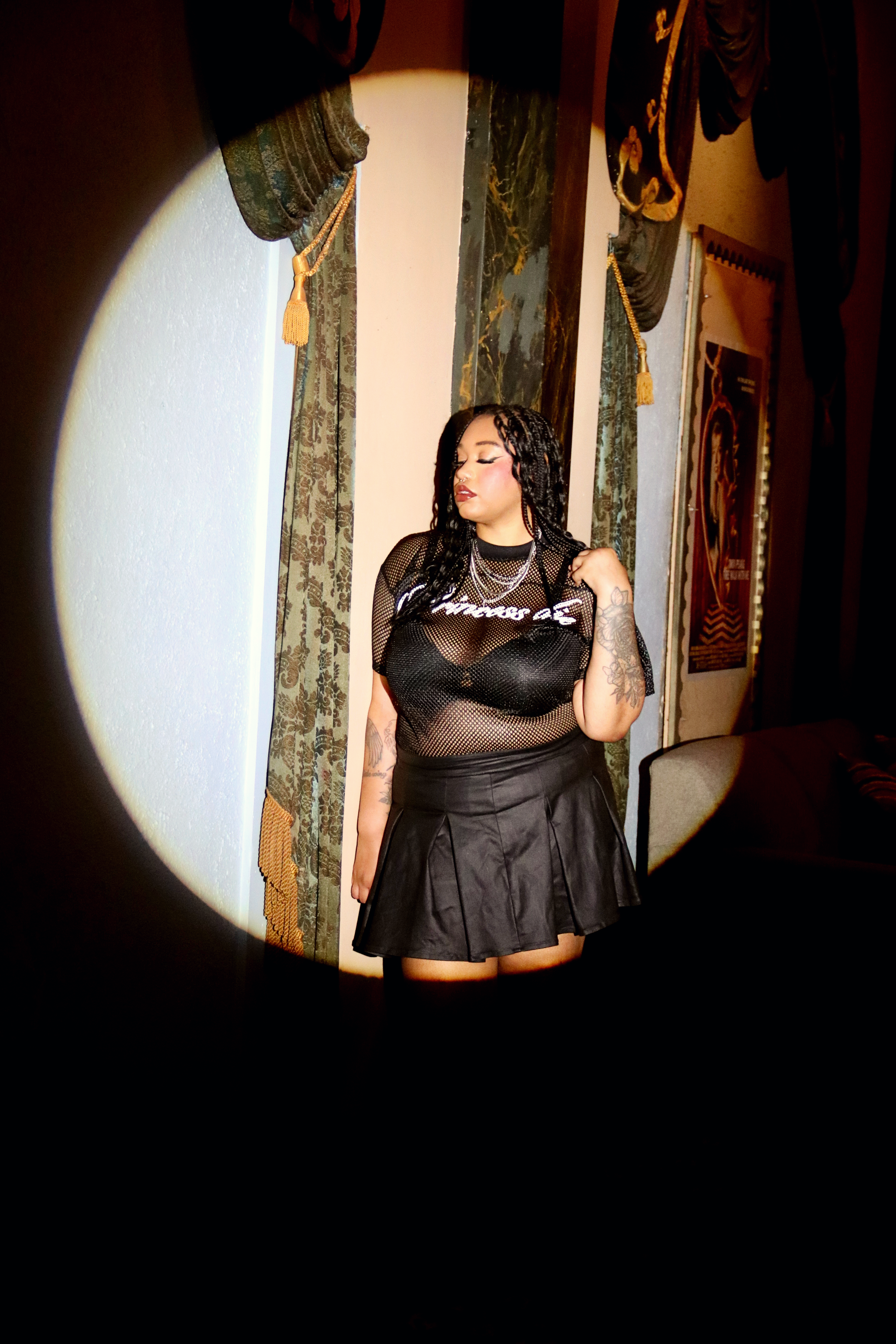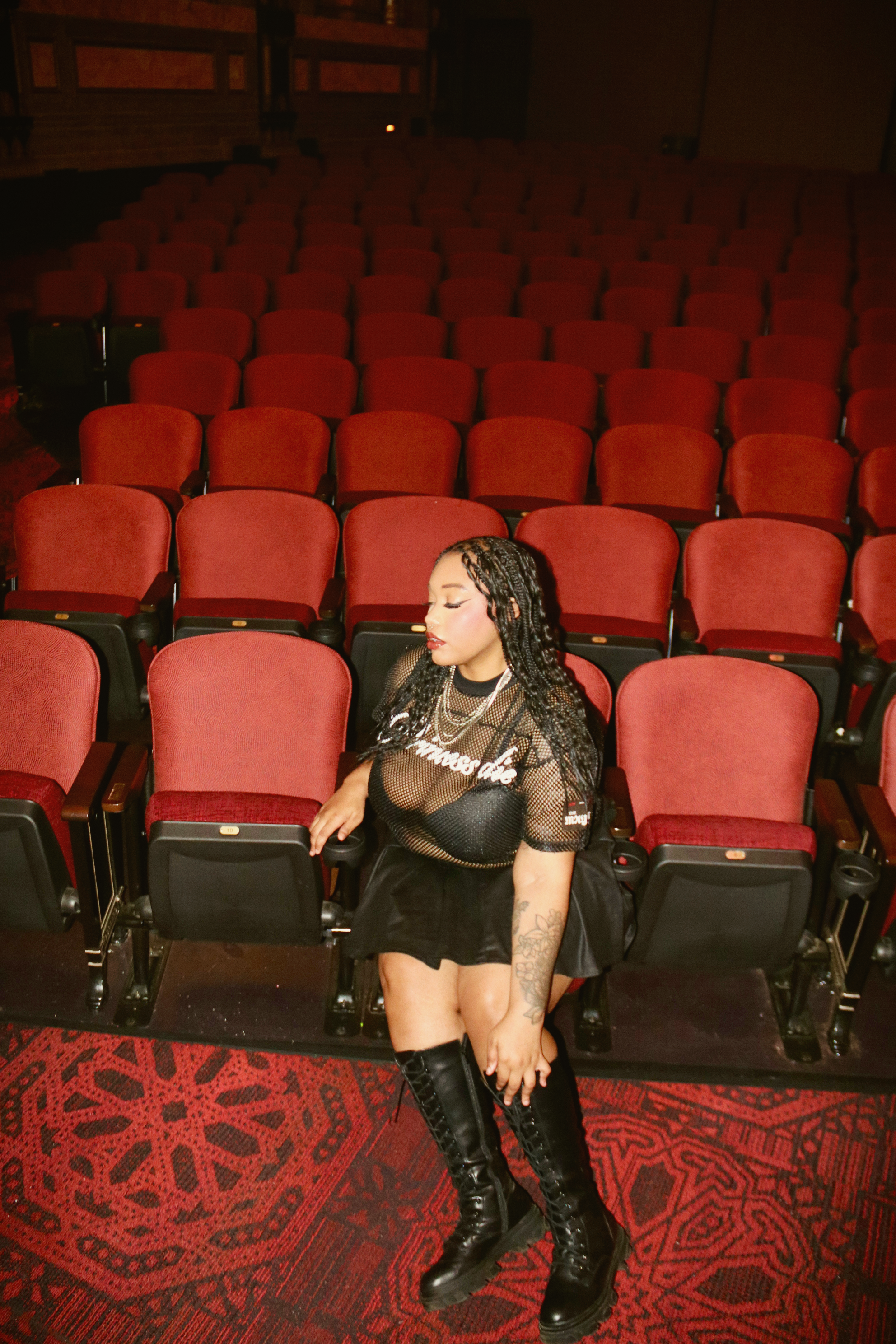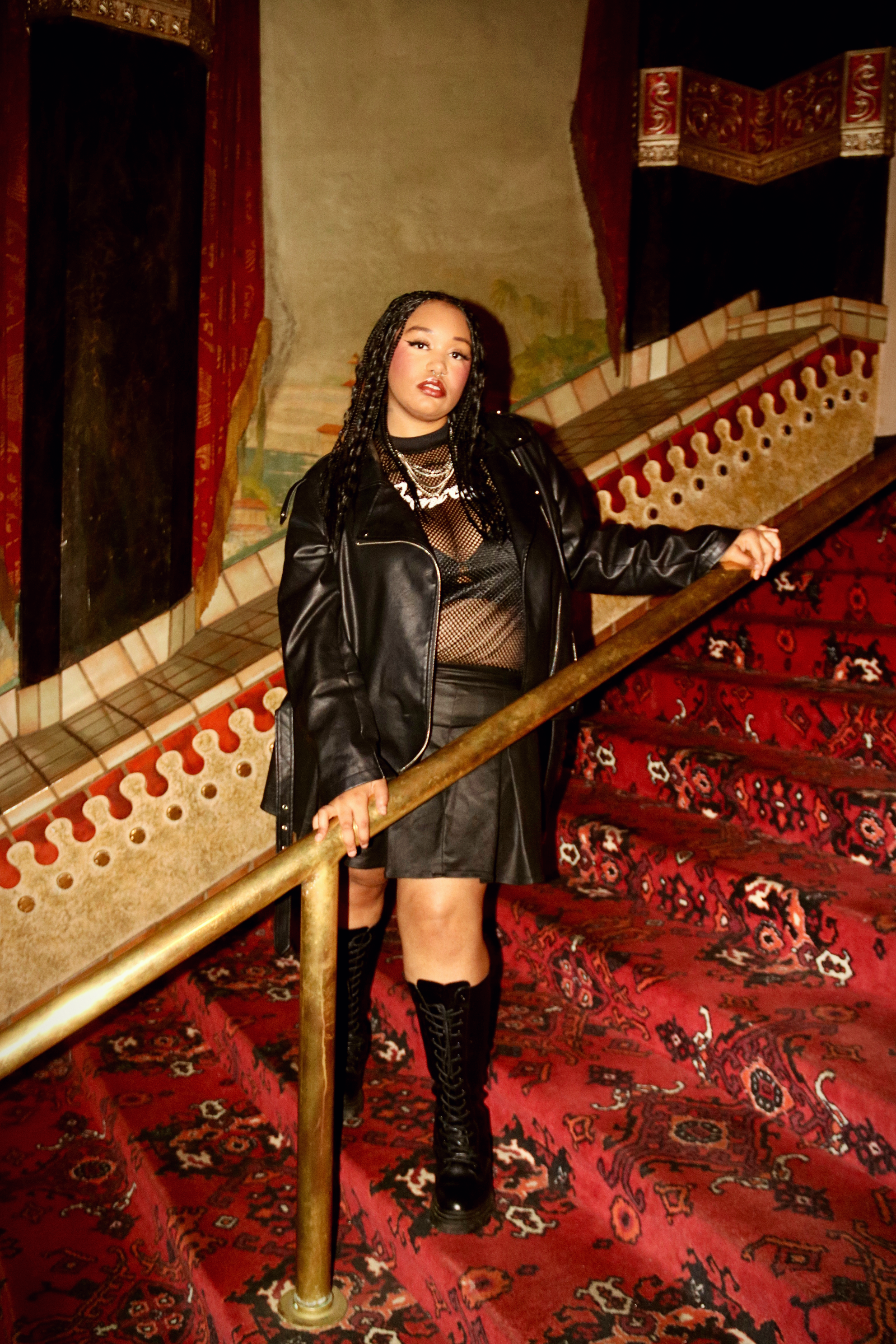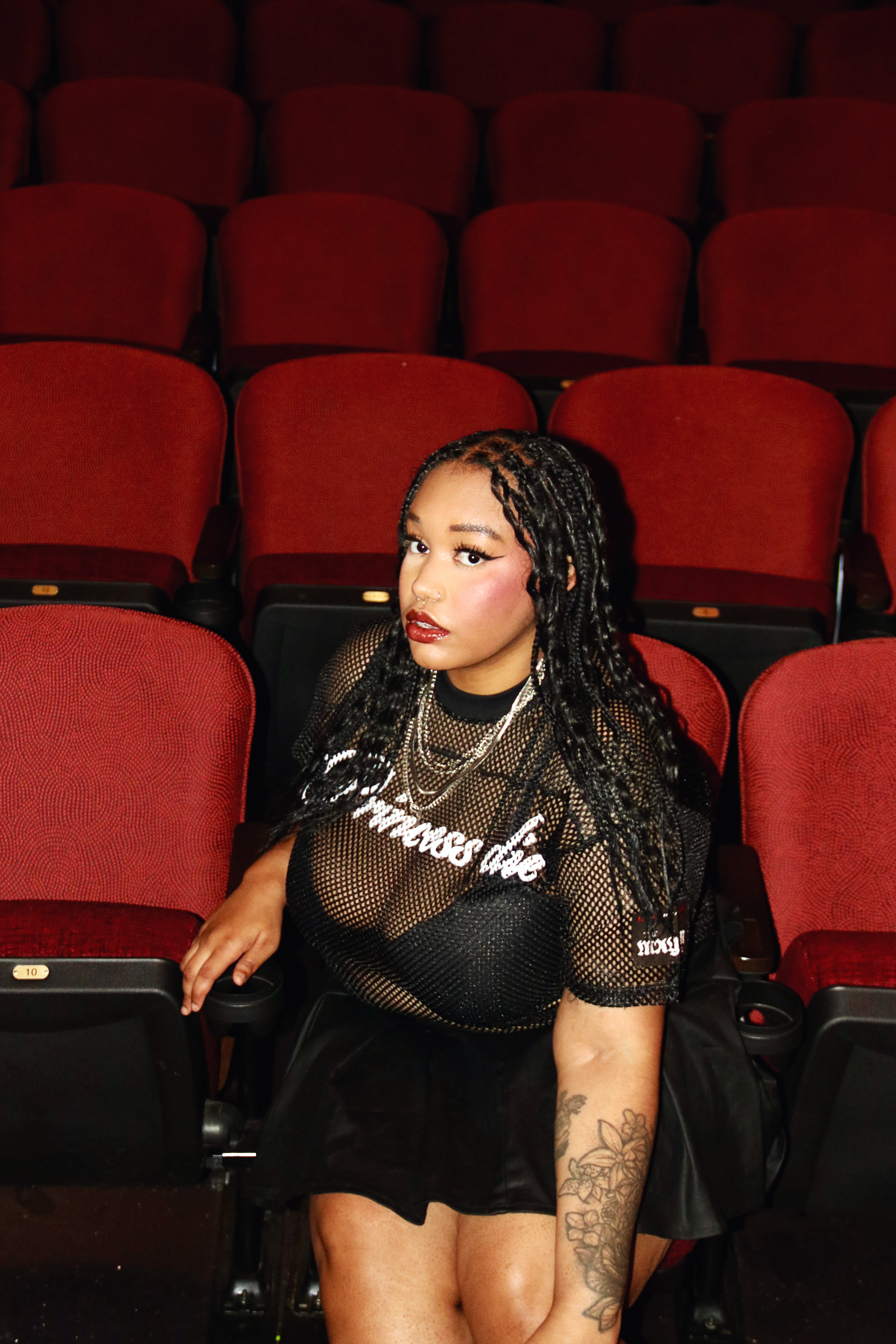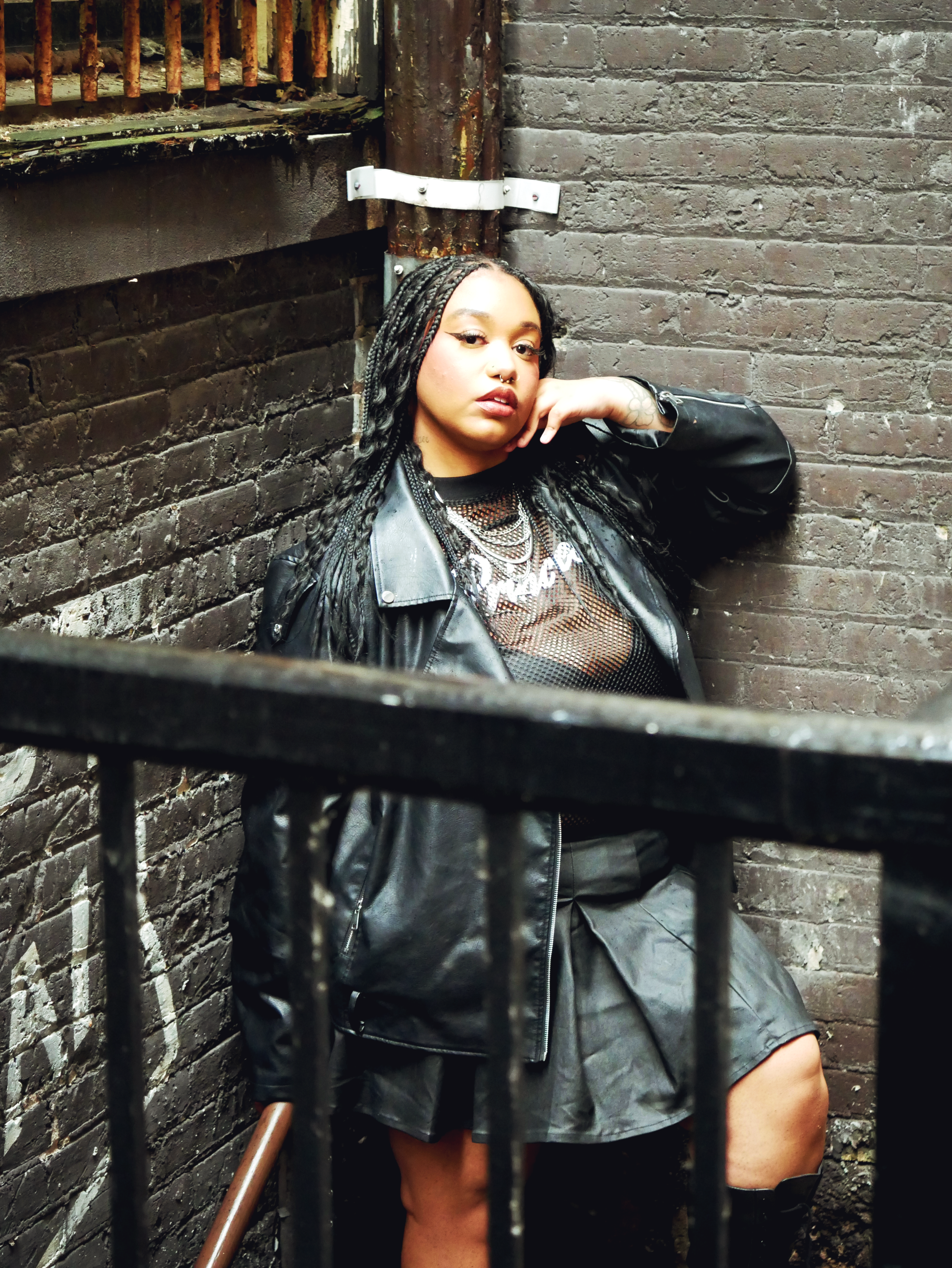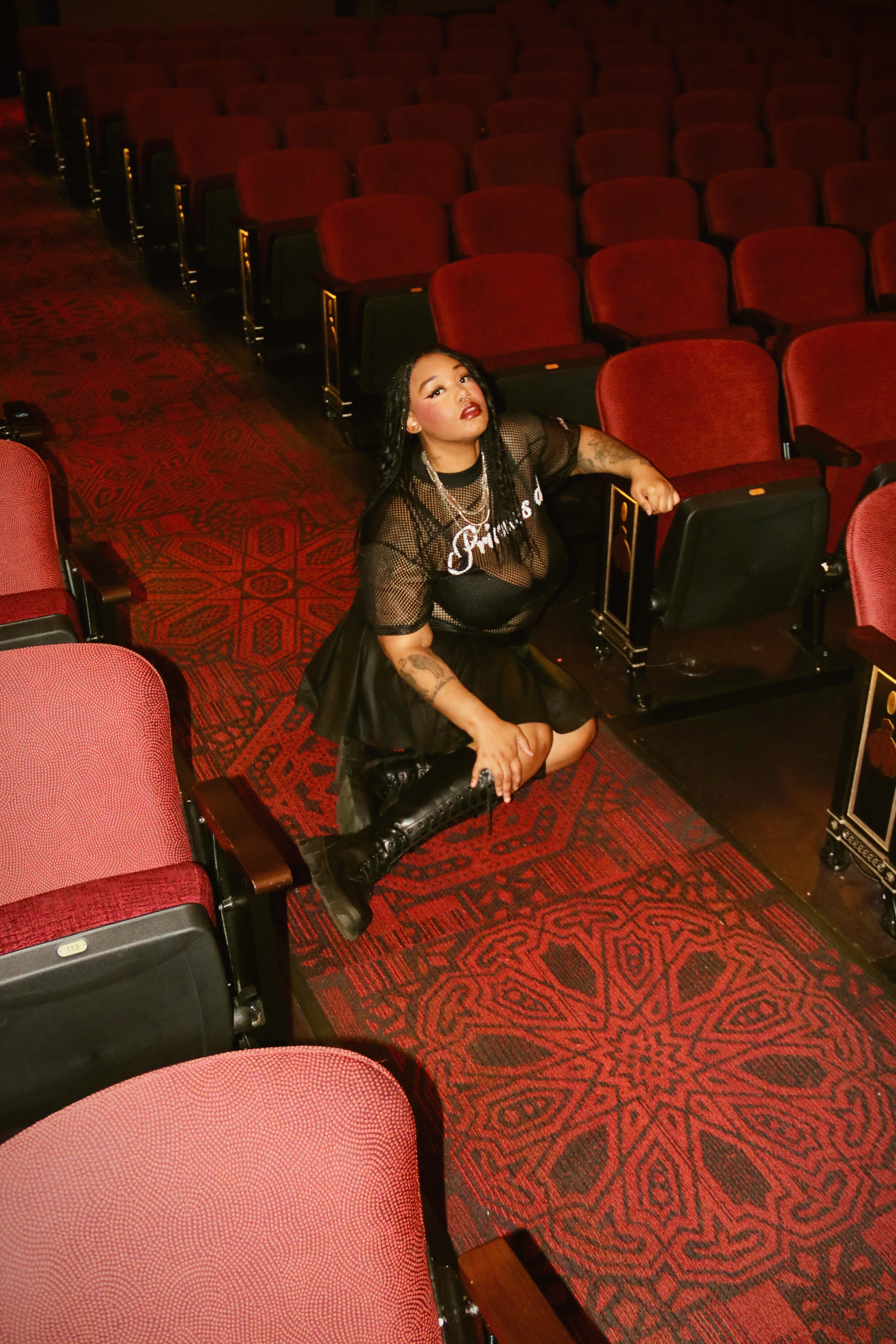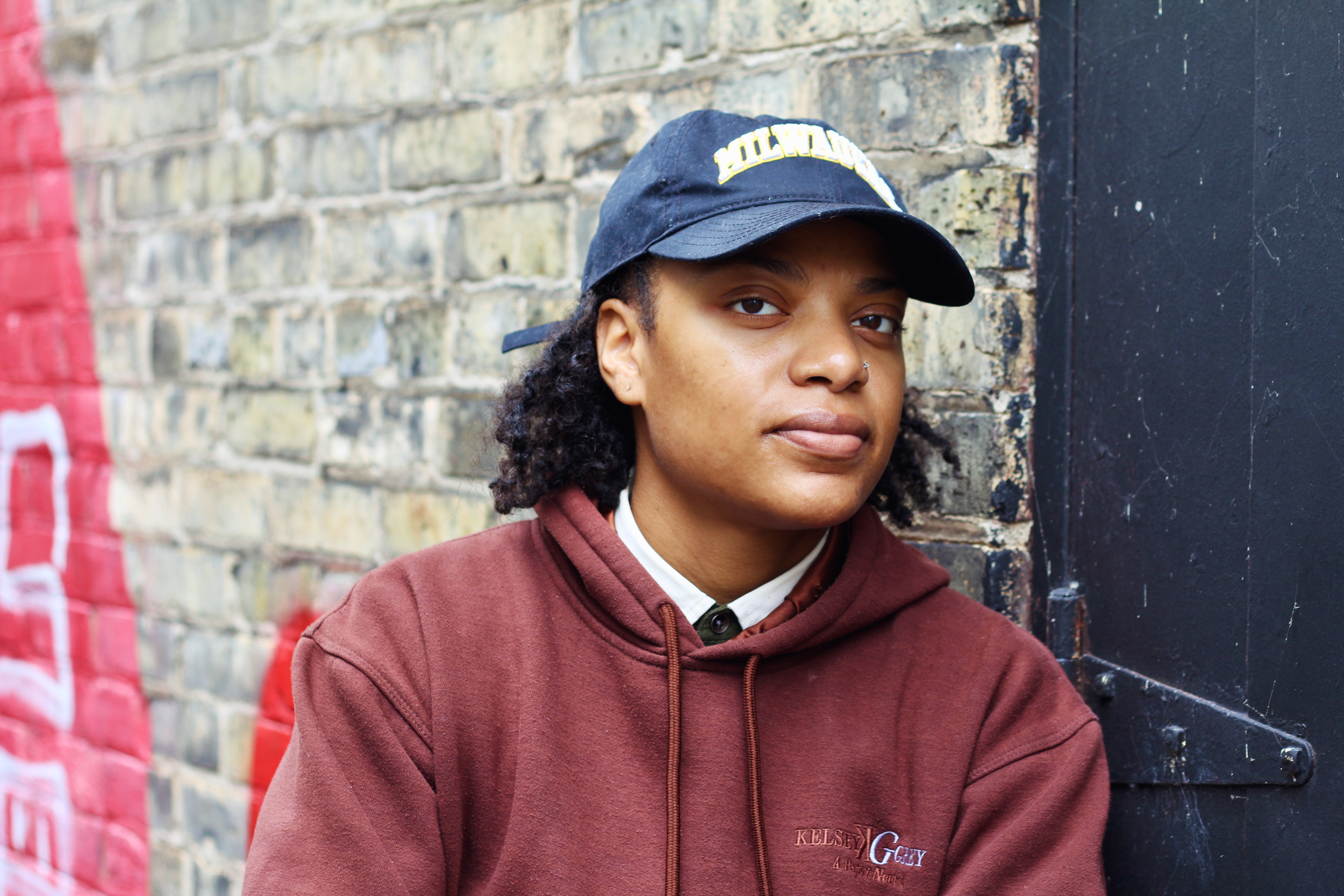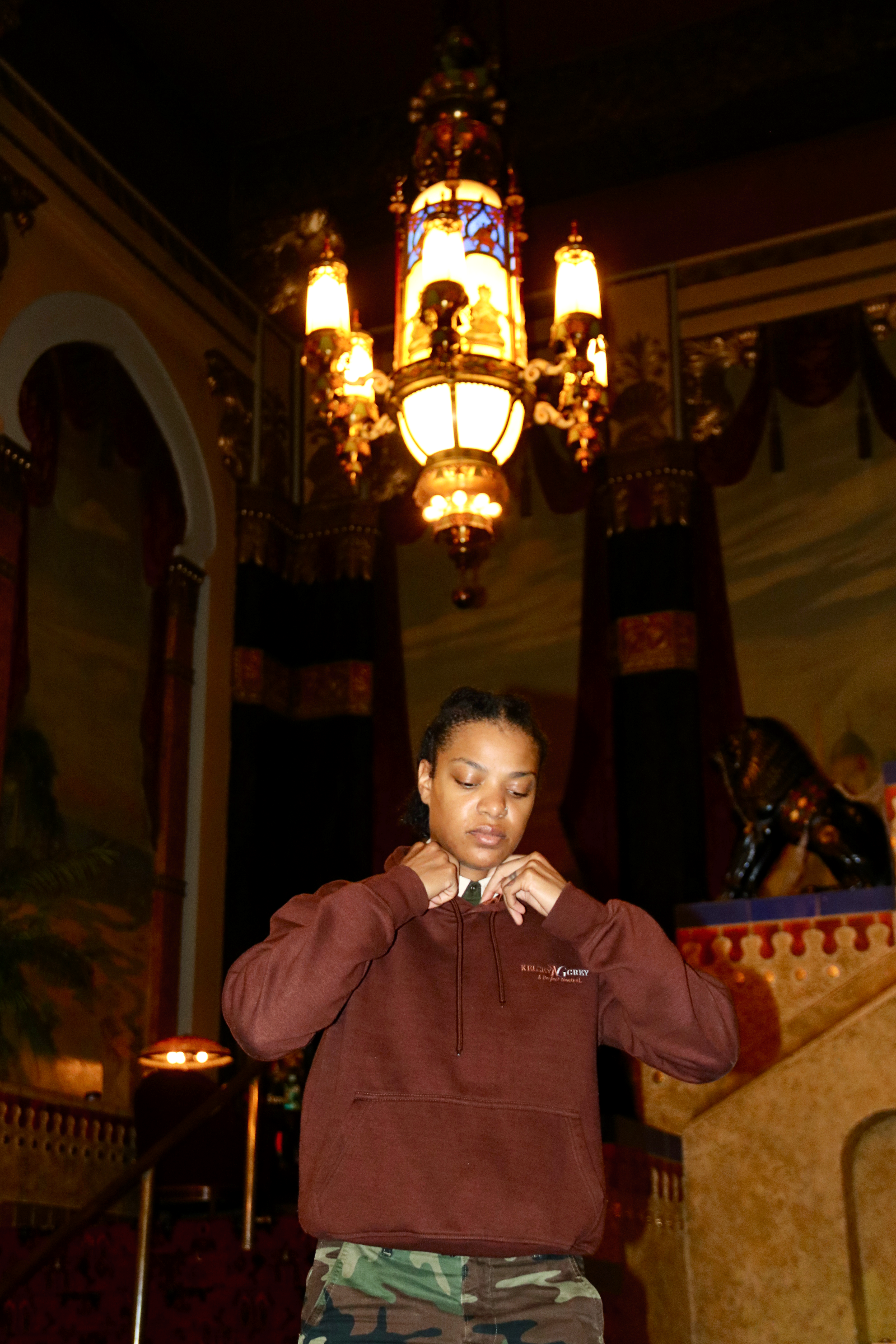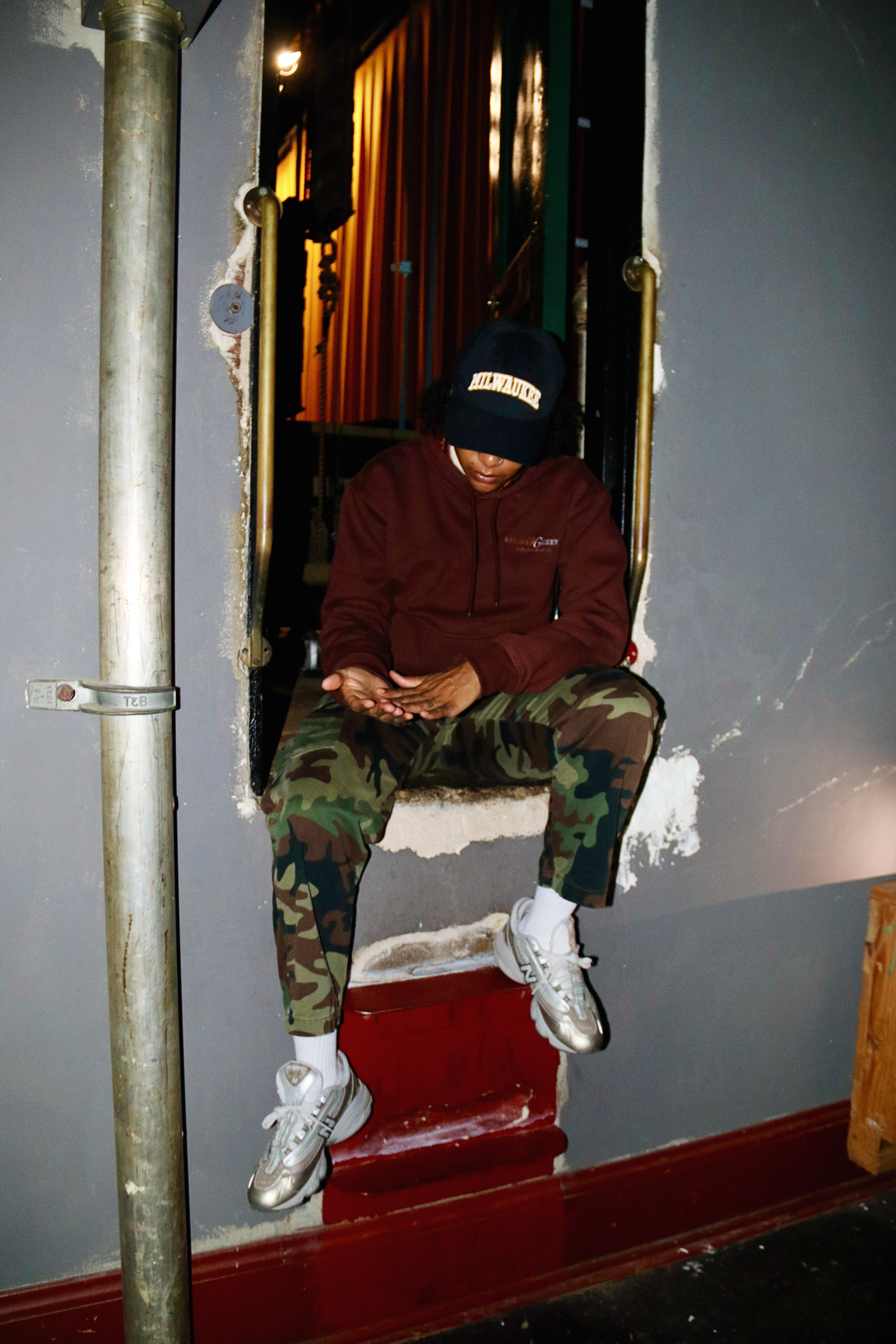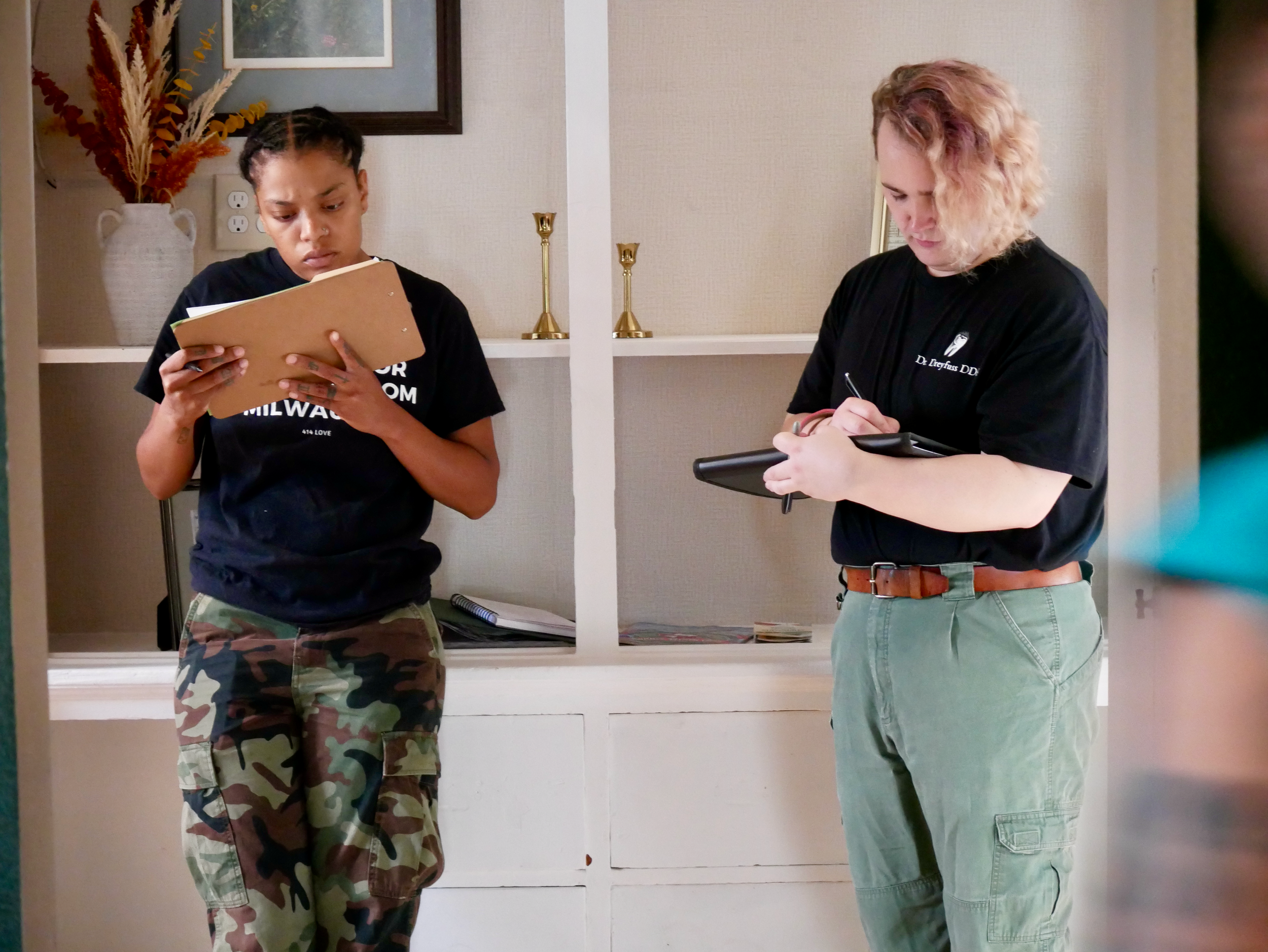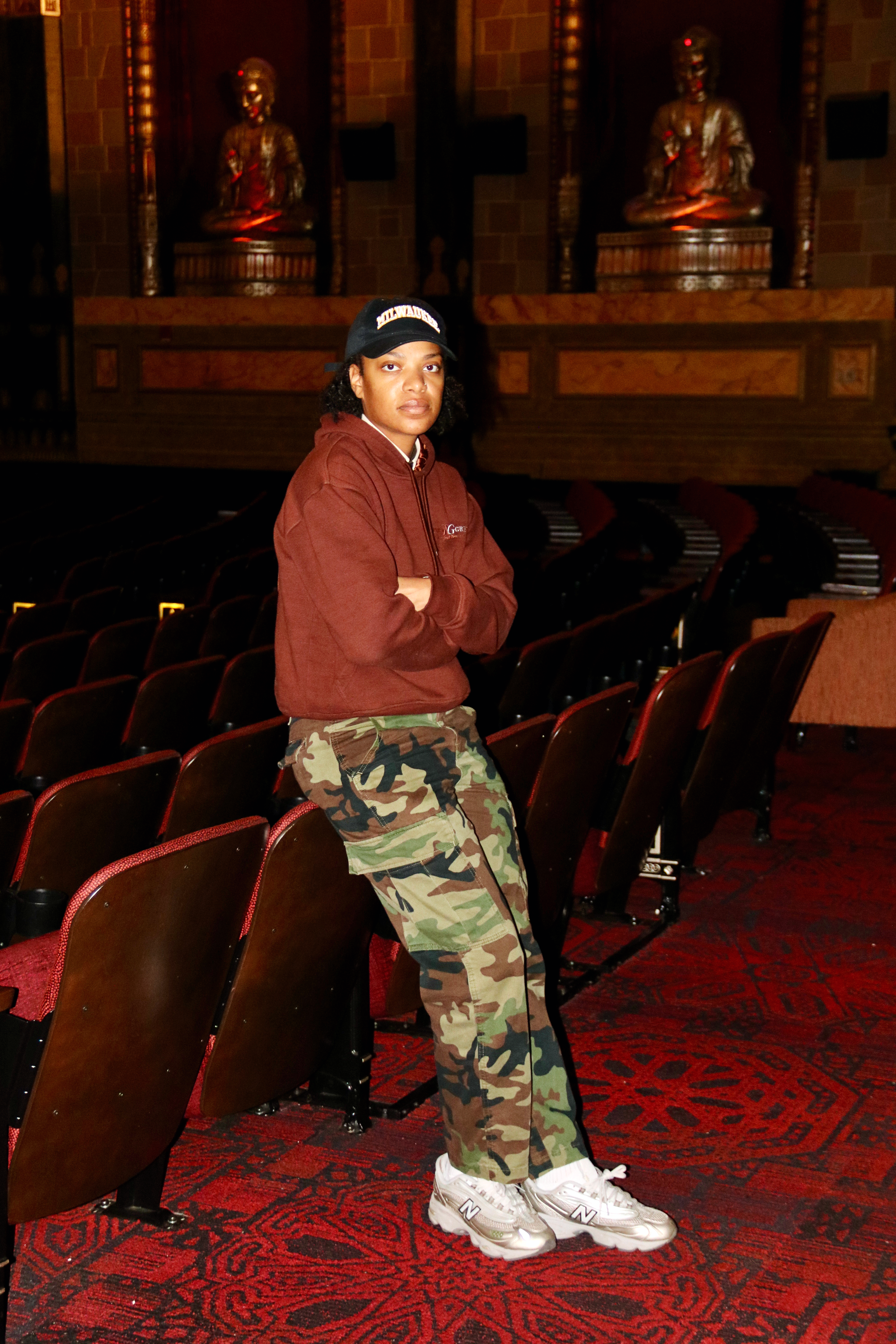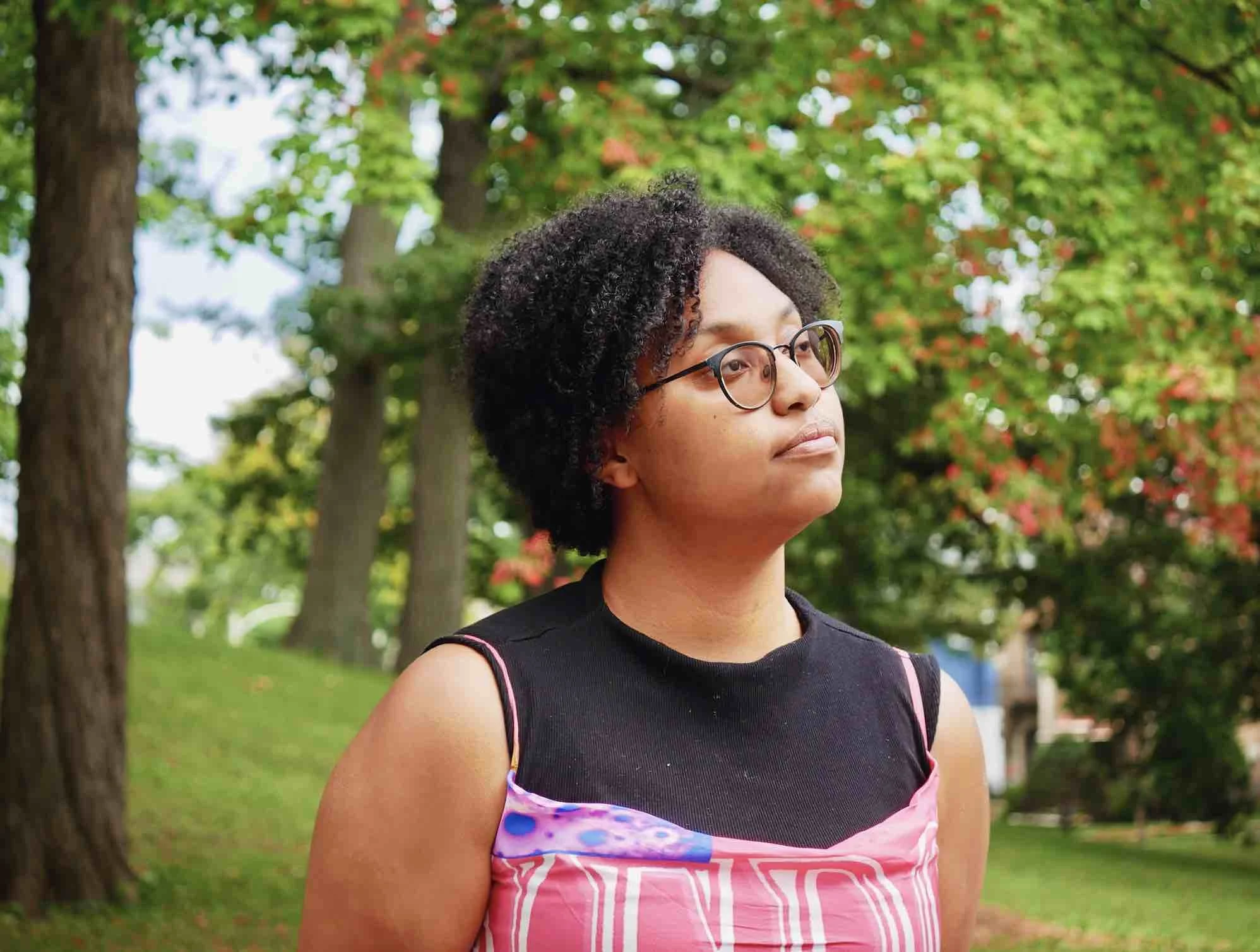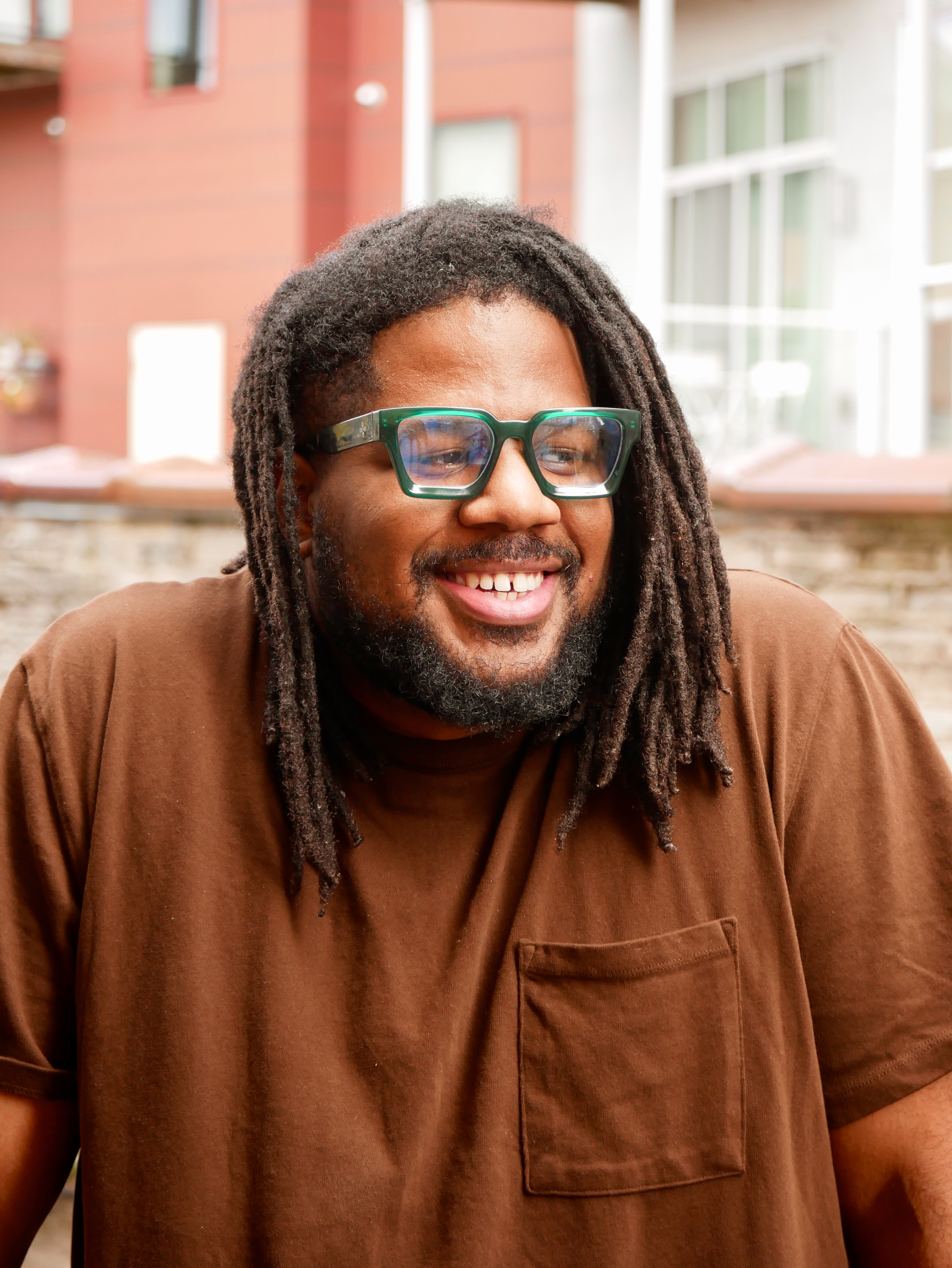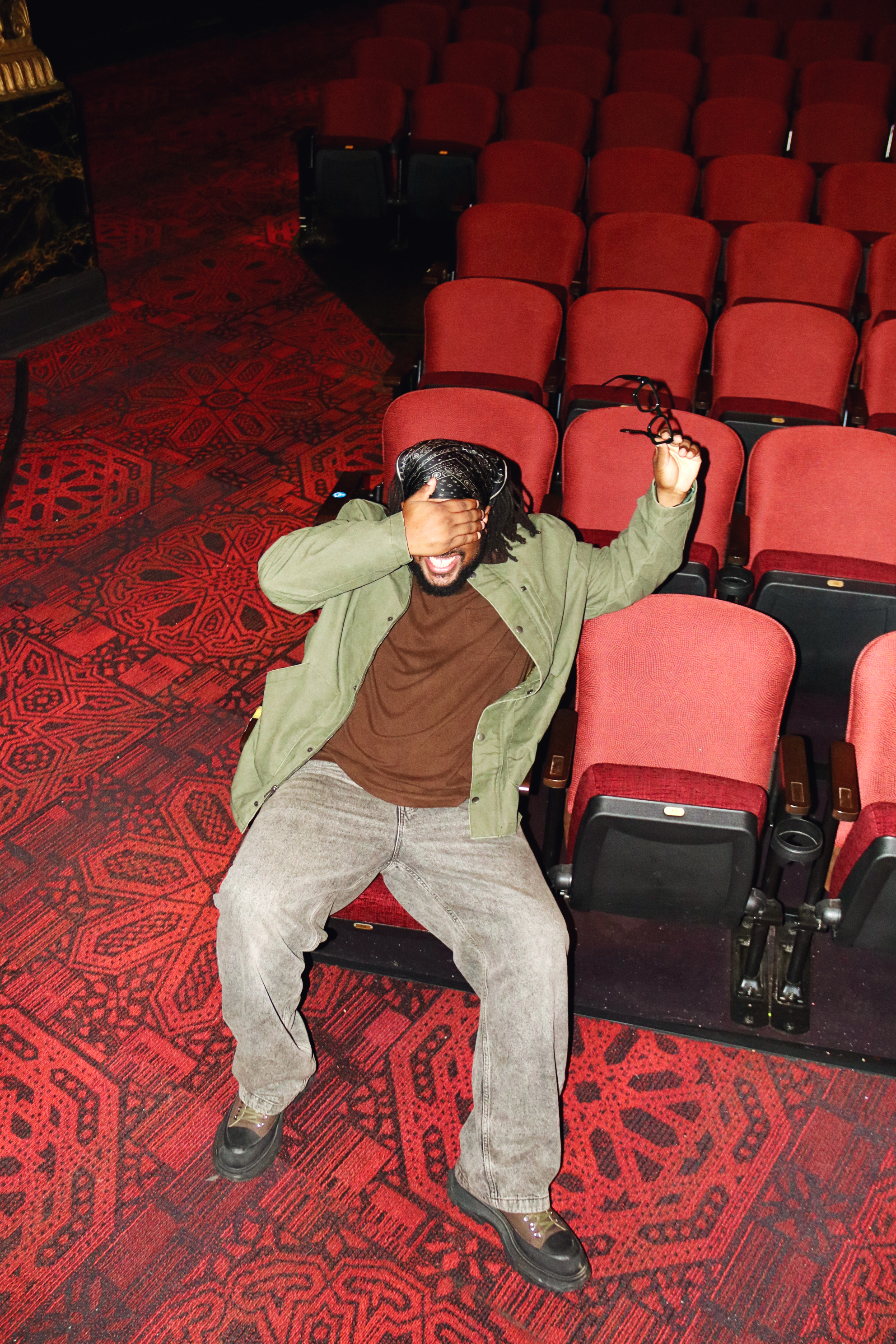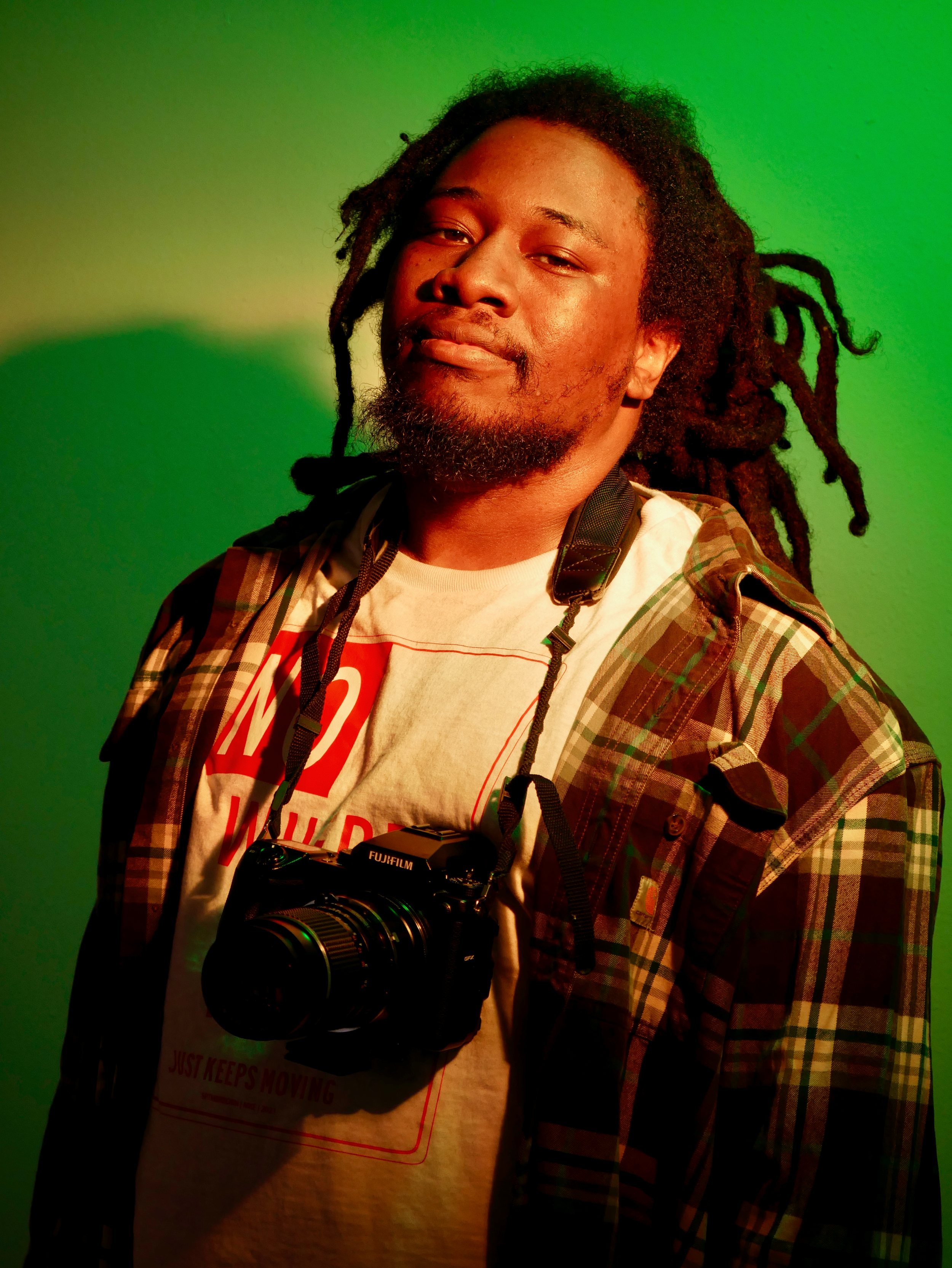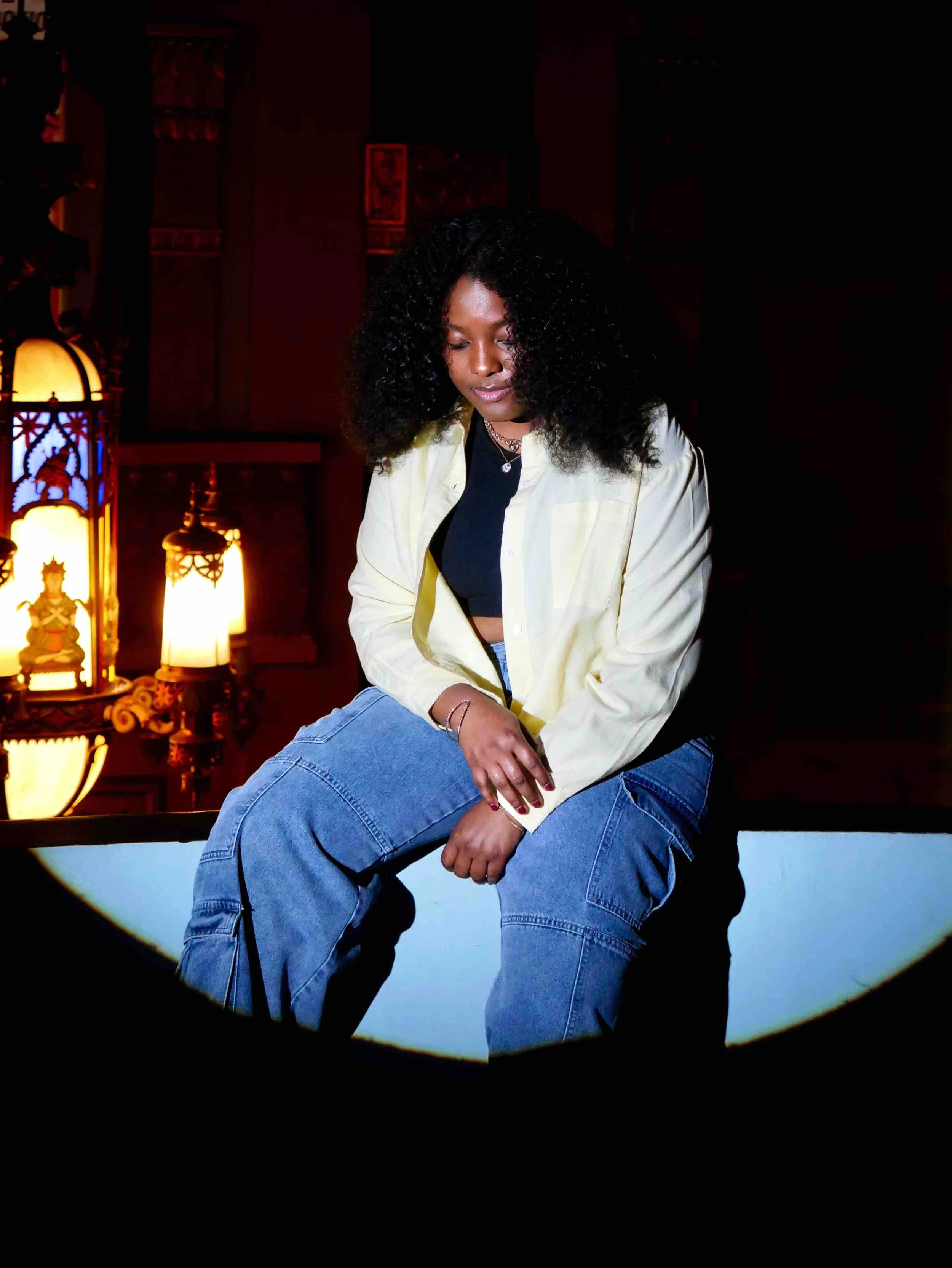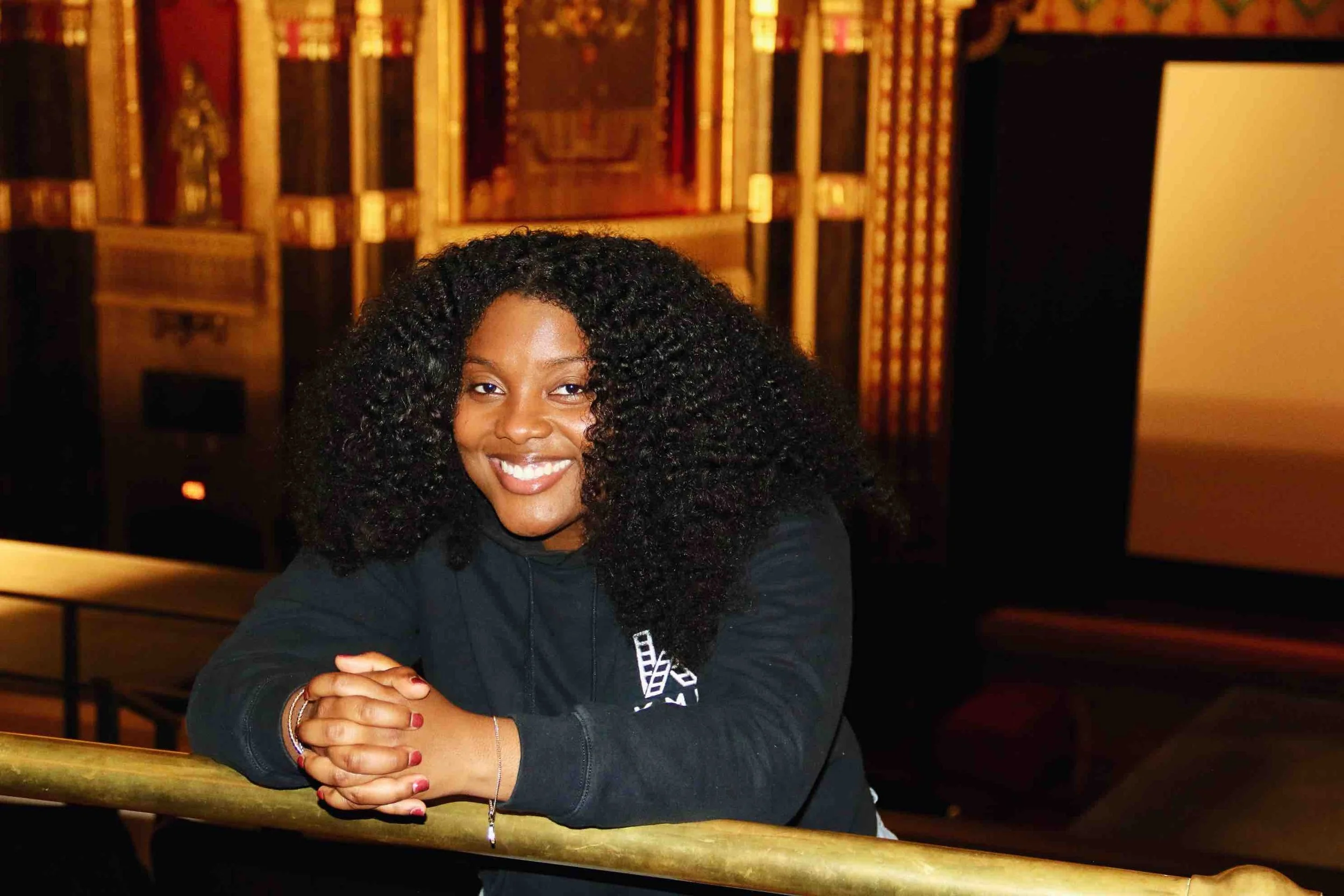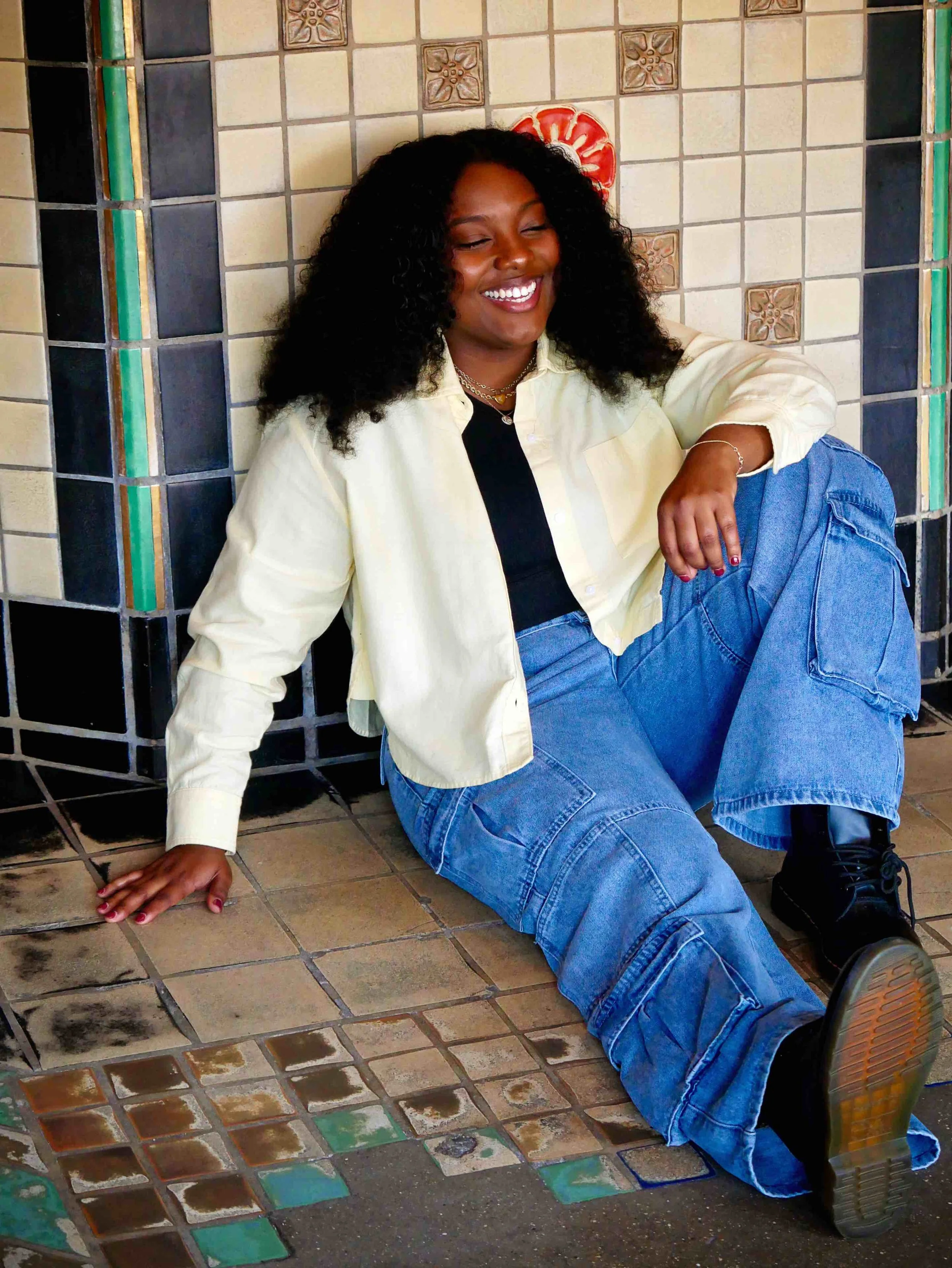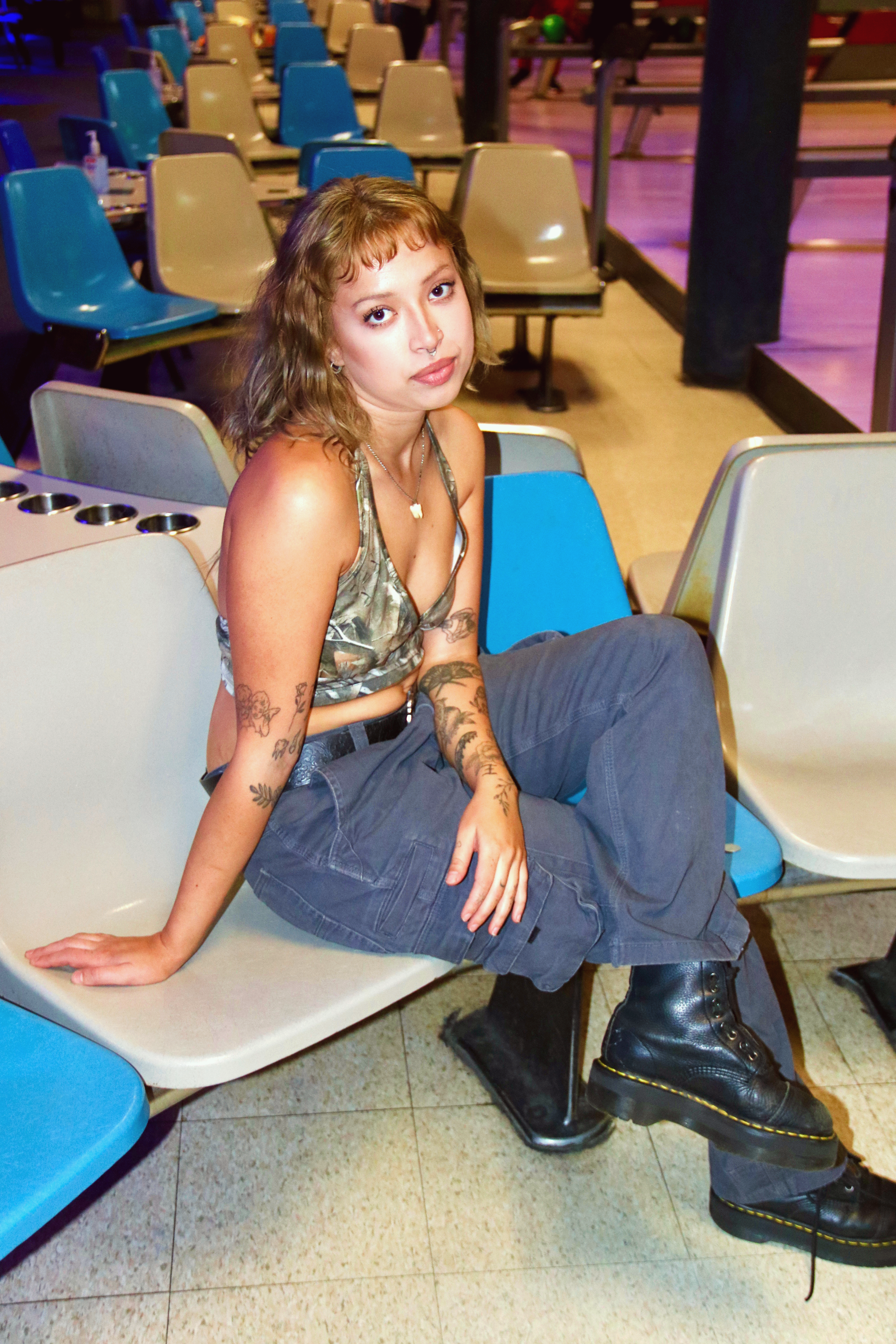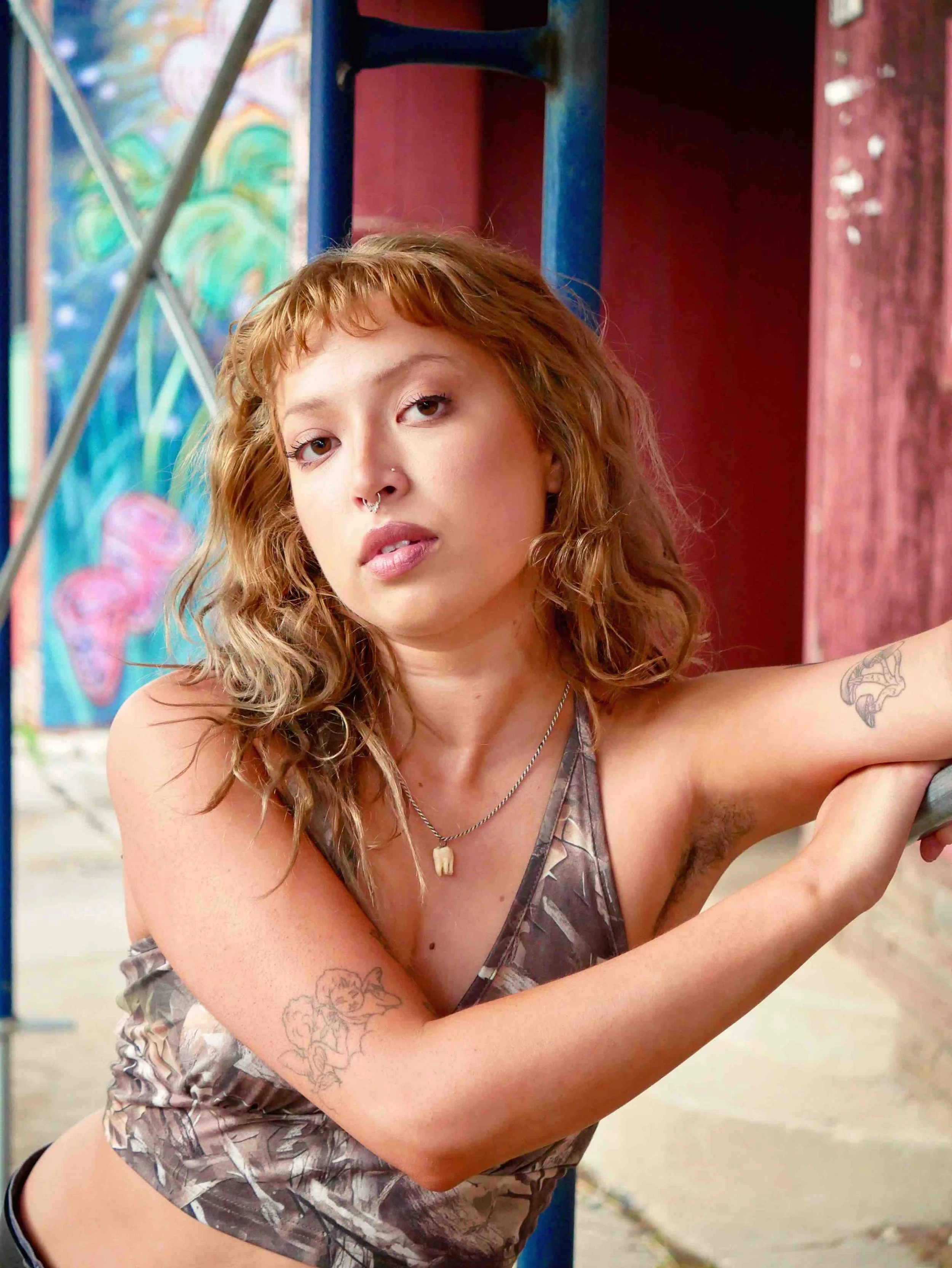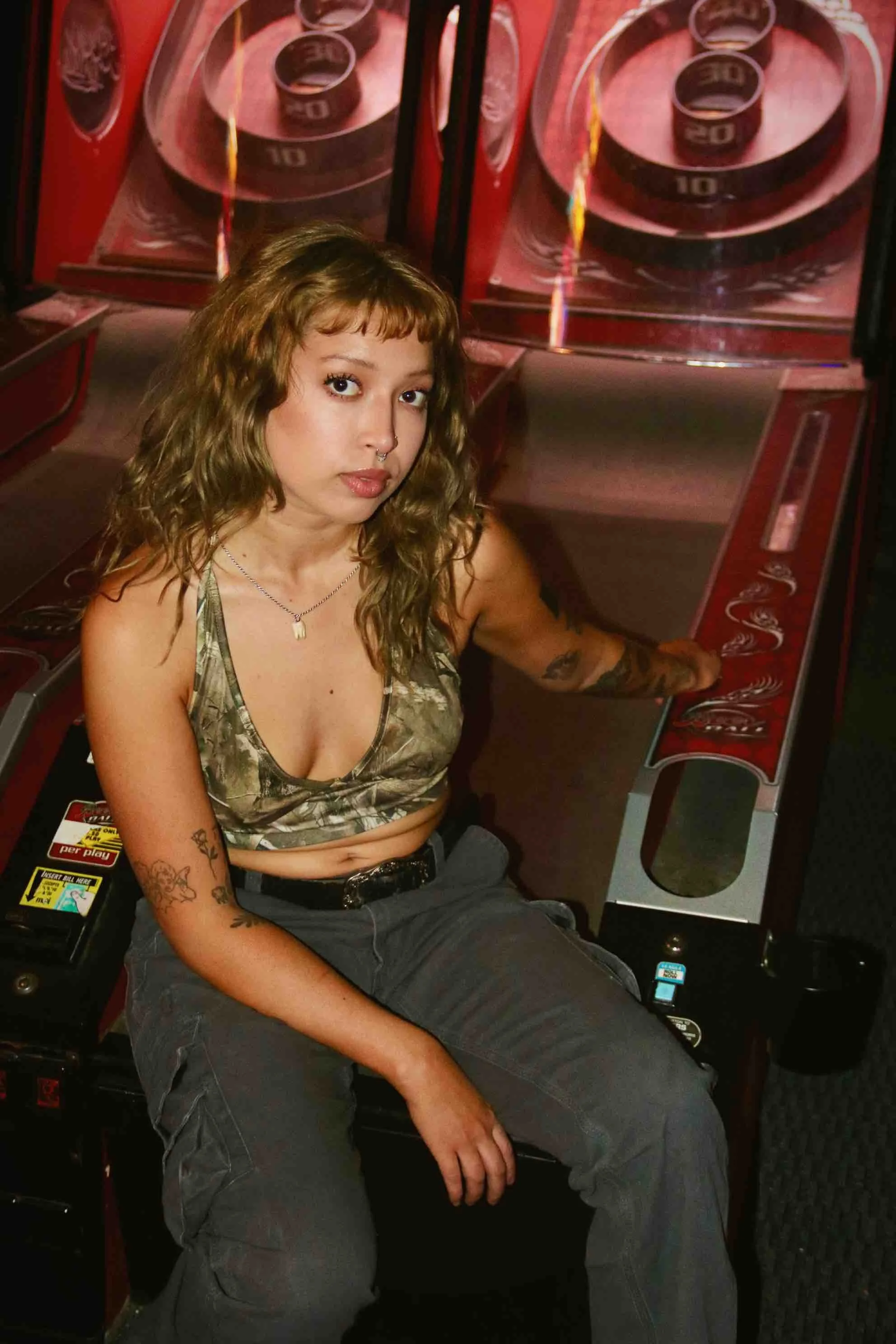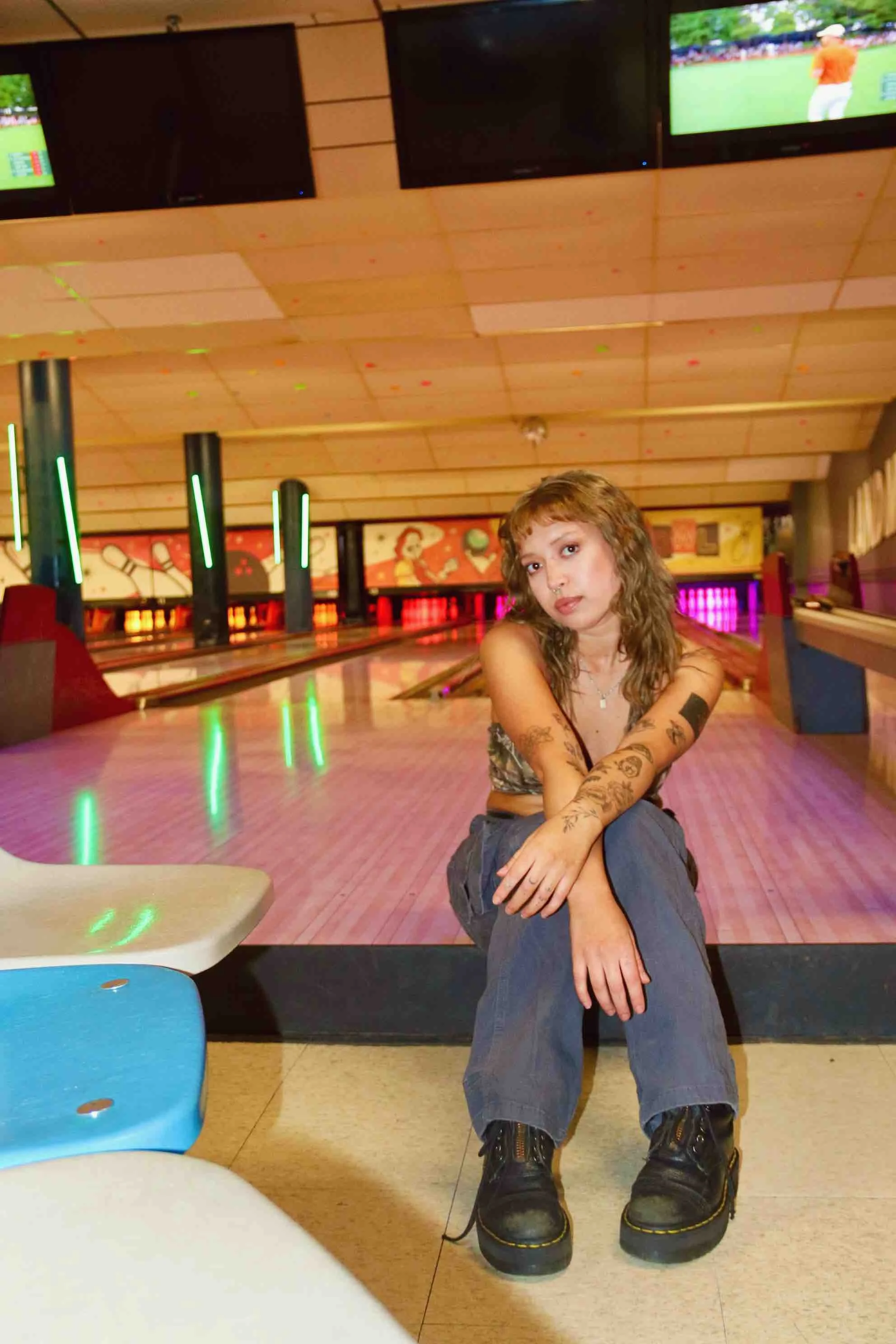A Woman's Place On Set Is In The Director's Chair with Jocelyne Berumen | By /CW Guest Writer Jolee Mallmann
/Jocelyne Berumen is a filmmaker, artist, and friend I have had the pleasure of getting to know over the span of several years and dozens of sets. We’ve worked together all over Wisconsin, from Green Bay to Rhinelander, Milwaukee and all the way back to the Fox Valley again. In a creative community that naturally ebbs and flows, Jocelyne’s passion has been consistent since the very beginning.
It’s hard to remember the very first time we had the opportunity to work together but one of the earliest memories I have on set with Jocelyne was for a music video she was directing at the Tarlton Theatre in Green Bay. Jocelyne had put out a call for an all local crew. I was able to join her set to help with props and behind the scenes photography. She commanded the set with a confidence and kindness I honestly wasn't entirely familiar with at that point. It was the first time I had ever worked with Jocelyne in this capacity and still she showed me an immediate trust that allowed me to do my job without second guessing anything. This was one of the first times I was ever able to join a set Jocelyne was directing and it greatly inspired me to continue working with her at any opportunity I could.
Since then, I’ve found myself on the set of multiple different music videos, photoshoots, and short films with Jocelyne. Throughout every project I’ve had the pleasure of working with her on or the opportunity to cheer on the sidelines for, I’ve noticed Jocelyne maintains a strong sense of integrity and purpose to her work. Between her own personal media business, 48 hour films, working on the sets of other local filmmakers, and one million other projects, Jocelyne is almost always in a cycle of creation. It’s clear she has a stamina and staying power that is very hard to find in a culture that doesn’t necessarily reward individuals for pursuing creative endeavors over capitalist ventures.
I find myself inspired by Jocelyne and women like her in the independent film world. For every reason she has to be cocky about the incredible and consistent work she does, Jocelyne finds a way to remain humble. I’ve never met someone quite as talented with the same urge to give back to other filmmakers and her community as Jocelyne. I’ve got a grip truck’s work of anecdotes about Jocelyne and the unique energy of the sets she creates, but the best way to understand this incredible filmmaker is to check out her work yourself. There are few filmmakers who will go out of their way to make sure everyone on set feels just as valid as the person in the director’s chair. Jocelyne Berumen is the filmmaker who taught me how extremely important that sentiment is.
Introduce yourself a bit! Where are you from and where are you living now? Do you feel like your experience growing up and your background with Wisconsin have had any impact on the kind of projects you choose to create?
I really love telling people I was born in Chicago, IL but at 9 months my mother ran away from my father and sneaked back to her home country Mexico. It sounds a little dramatic, but it really was that way. My mother was brought over illegally against her will, then I was born. She couldn’t handle the daily stress of being an illegal immigrant in such a huge city, so she took her baby and ran back home. I grew up in the tiny village of Huitzila, Zacatecas, Mexico. Tucked away within rows and rows of mountains, dirt roads, and endless cacti plants. I have vivid memories of the home I lived in and the freedom I had. When it rained, the roof leaked, and I remember my sibling and I watching the buckets fill up under candlelight. As soon as pre-K, I was sent off alone to school across town, and I remember my mother handing me some coins so I could stop by my aunt's shop to grab a snack on the way. We had a huge yard full of rose bushes, and a giant avocado tree where mom would swing us over what seemed the biggest creek of water. I share all of this, because I remember how free and confident I felt at such a young age.
When my father convinced my mother to return to the USA, now legally, we moved back to Chicago. I was now confined to the tiny basement of a three floor building. It was bitter cold, and the traffic was so noisy and terrifying. My mother said I would come home bawling my eyes out because I couldn’t understand anyone at school. When we moved to Green Bay, everything felt suddenly calmer. Quiet farm roads, lessening traffic, and kind people. I still wasn’t a fan of the cold winters, and not being able to take walks on my own. I felt like my mother was also trapped because for fun she would take the family camcorder and make us act some story she made up. This was not new, as when we were in Mexico my mother loved getting her cousins together and making movies. Being confined to the walls of our home actually boosted my creativity. All of the liveliness I had inside, I had to channel it somehow. So, yes, I feel like WI has taught me over the years how to tell stories within, and around the walls that we have. I spent so much time writing during the winter, and then letting those stories out during the summer. I think, maybe, that is the magic of WI.
You live in Green Bay but you shoot all over the state. Where are some of your favorite places in Wisconsin you’ve had the opportunity to film and do you think there is anything a little extra special about filmmaking in our state?
My favorite place visually has to be the sunset in Door County. I shot a music video for a client up in the peninsula, and it is still one of my favorites! Another is the private beaches in Two Rivers, again for a different music video. Lastly, I truly love filming in Milwaukee. The amount of studios, locations, and community that are available is so refreshing. I think it is special that we have both beautiful landscapes, and a thriving city community that allows us to create just about anything.
Has Wisconsin’s independent film community shaped your work in any significant way?
The community here has allowed me to keep growing into the filmmaker I aspire to be some day. At first, I felt very defeated about being in WI. I kept asking myself, “How will I ever tell the stories I want to tell here?”, and I did meet some people that tried to break my spirit early on. After meeting, collaborating, and creating with many amazing people in the community, I realized there are SO many stories that I can tell here in WI, and there are people who will have my back to make it happen. I feel that the film community here is eager to show that cool people, things, and stuff happens in Wisconsin too.
What is your favorite genre of films to watch in general and what are your favorite kinds of films to make?
As someone that grew up with a family that liked making fantasy horror films, I have to say that I lean towards that genre a lot. Films like Pan’s Labyrinth shaped my writing as a child. As an adult, I grew to appreciate world building films such as Mad Max. Films that take you into a whole new world, and make you want to be there, whether dystopian or not. Recently, I have been appreciating 60s and 70s Mexican and other countries filmography. The stories that are told, the effort into the set design, character design, and special effects have been drawing me in. Due to those interests, I try to fall into projects where we take the audience to another world. Hence why you may see a 50s themed music video, or a 20s themed, or maybe the setting is heavily french rococo. I just love creating here in WI what people don’t think exists.
You’ve worked on multiple short films, music videos and commercial projects. What are some of the projects you enjoyed working on the most and why?
Any project I did with Bourbon House I heavily enjoyed because they were just as eager to create something fun and ambitious as I was. Any time they would say, this needs to be 20s themed or 50s, I would get so excited about planning it out. In addition, most recently I was DP and helped produce Hailey Olson’s two latest music videos - Saturn’s Return and Ancient Evenings. When she shared her ideas, I was SO happy! It was extremely hard work, but I learned so much, and was given the opportunity to shoot some of the coolest scenes ever. It allows me to reach into that curious and creative little girl I have inside me, and let her loose.
How did you get your start in filmmaking and what was your inspiration to start in the first place?
I have to blame my mom and her brothers for this one. In Huitzila, my uncles loved film and bought one of those giant panasonic cameras to make their own films. By the time I was in Mexico, my mother would borrow it and create her own films. Most of the times her films were scary – about witches and monsters. When we moved to Green Bay, she continued this, and I have some super fun memories of her creating with us. I became a writer at a young age. As soon as I learned how to write in the 1st grade, there was no stopping me. During recess, my friends and I would play pretend. I directed them, giving them roles and a storyline, and then we would play. After recess, it was writing time, and I feverishly wrote down the story we just played. By 2nd grade, my teachers had me reading my stories out loud to classmates. The stories were always some sort of fantasy and tragedy. In the 5th grade, when asked what we wanted to be when we grew up, I wrote down director. I promised our veteran janitor that one day I would make a movie about him. My teacher submitted me for the gifted and talented group in order to continue my writing. I remember seeing the paper and the signature, and telling him, “Hey, that isn’t my parent’s signature,” and he shushed me. Mr. Long, really believed in me.
I could tell you my whole life journey with writing and filmmaking, but, to not make this freakishly long, that is basically where it started!
What’s your favorite role to play on set and why?
I really love directing/producing. I love putting all the pieces together, bringing the vision to life, and seeing the finished work after is everything to me.
Who are a few filmmakers you find major inspiration in?
Guillermo Del Toro is high up there. Dark fantasy, romance, horror. With a touch of crazy set design and costuming. All the way Guillermo Del Toro.
Park Chan-Wok has to be another. His storytelling is beyond this world. Additionally, the work he puts into making beautiful films from a tragic or disturbing story is also an awe of mine.
Do you have any fun memories from working on film sets? Could you describe any challenges or learning experiences from your time on different sets?
A fun memory I had was helping out Max Hauser for his music video “Nighttime Boy”. I volunteered to dance in this amazing skull mask that Jolie Mallman made. I had to work the next day at 5AM and stayed on set until 12AM and was an hour away from home. I had SO much fun and loved watching the guys put the set together, that I didn’t feel tired at all!
A challenge I constantly have is not being on film sets enough to understand the lingo and the set rules. All my projects I have created and done with people in my area, and the little training I had was with a commercial production company…but it never stopped me from continuing to pursue these projects. It just made it harder to understand what people wanted from me when they had an entirely different experience on set. The more I am involved though, the more I learn and it is my goal to be 100% fluent in their language.
Do you have any advice you can share with someone just starting their career in film?
My advice would be to take what others say about you with a grain of salt, and do it anyway. People won’t always support what you do, but if you fight hard enough for it, you may inspire others to join in. Don’t wait for someone to give you the green light to start doing what you want to do. You will fail, make mistakes, and create some really bad films, but it is necessary in order for you to grow. This industry is not easy, and you’re quite crazy for pursuing it, but honestly, embrace the crazy and push through! You won’t regret it!
What are you looking forward to next in your career in film? Do you have any projects in the works or things you’re excited to try next?
Yes! In GB, we are hosting a monthly filmmakers meetup to help each other in the community finally finish projects. I am guilty of writing tons of things and never doing anything with them. With the monthly workshops I am holding for writing, my hope is to create my first short film (non-48 hour related) next summer! Be on the look out for a zombie quinceañera tale coming soon!
Where can we find Jocelyne’s work?
Into independent film? Want to learn more?


